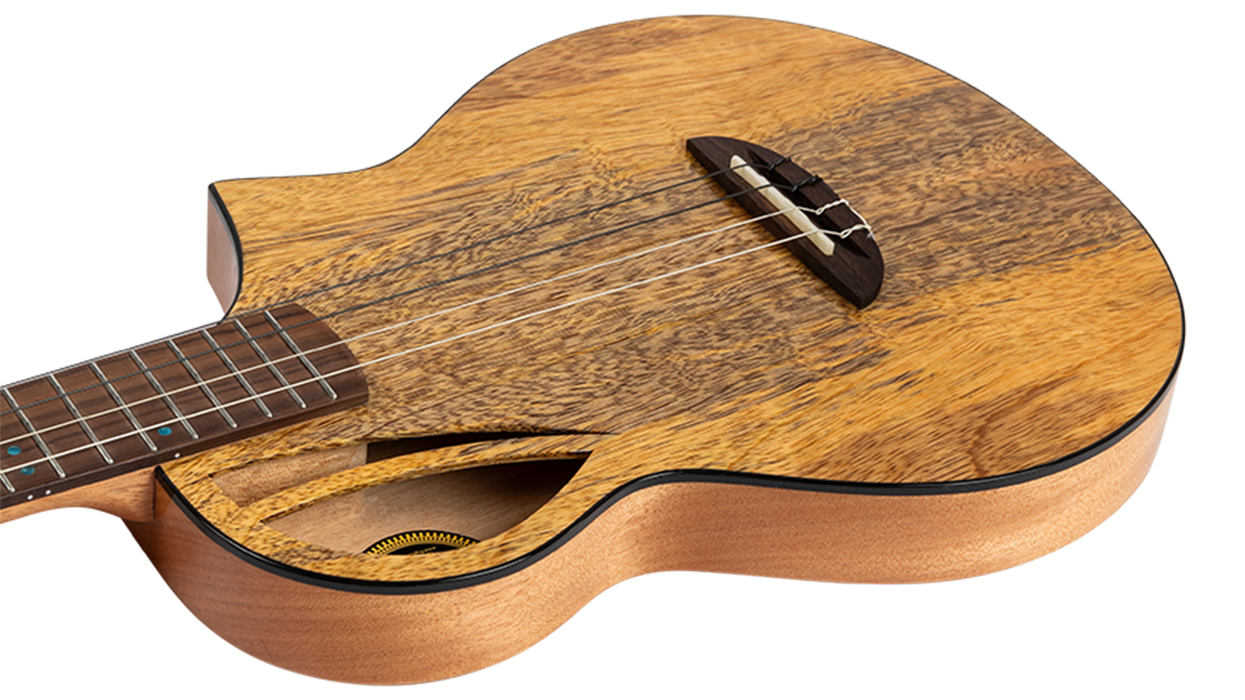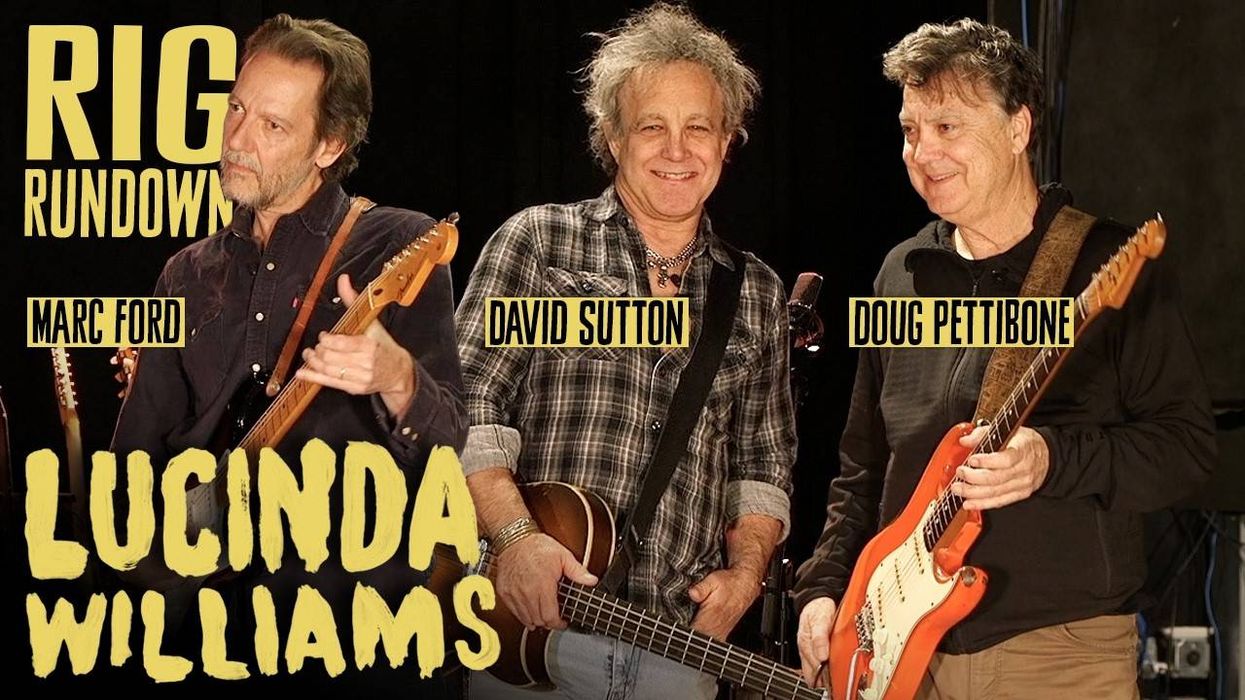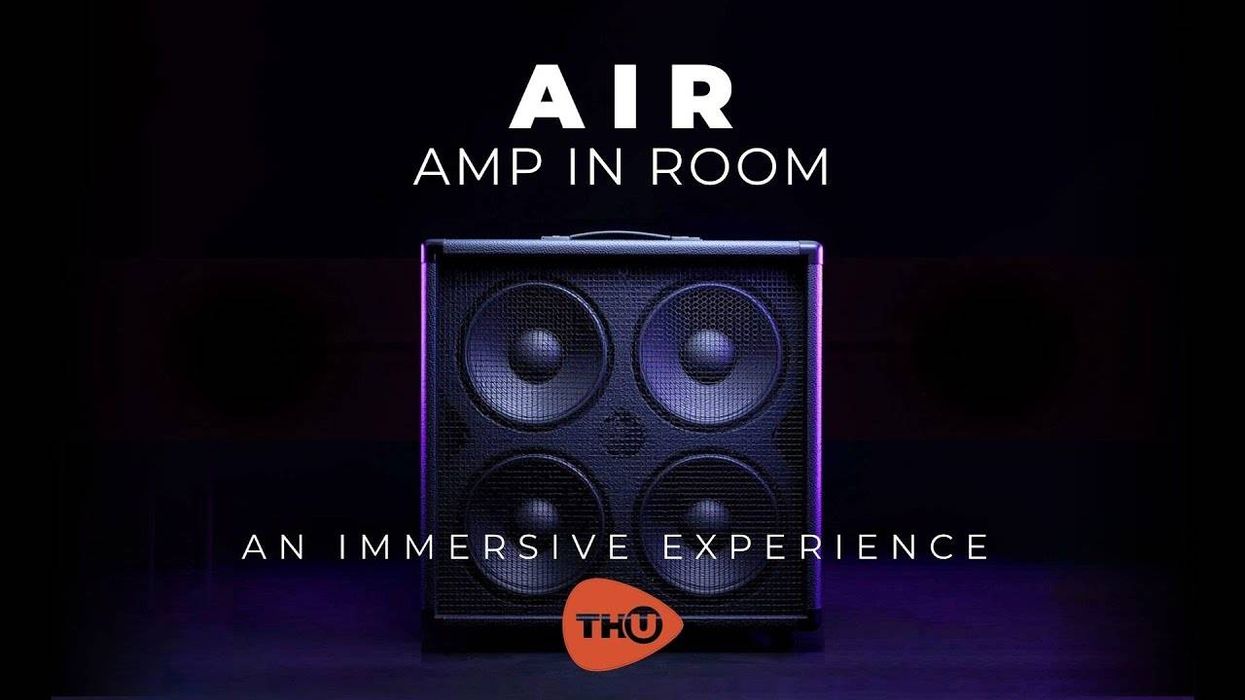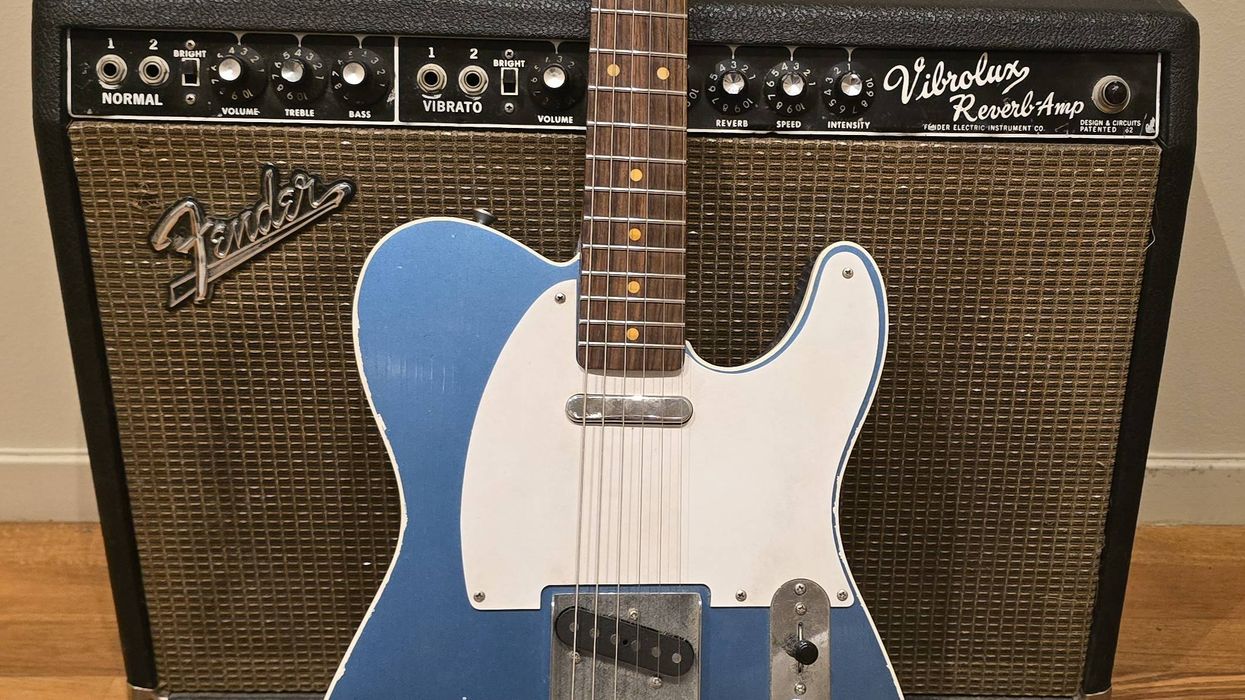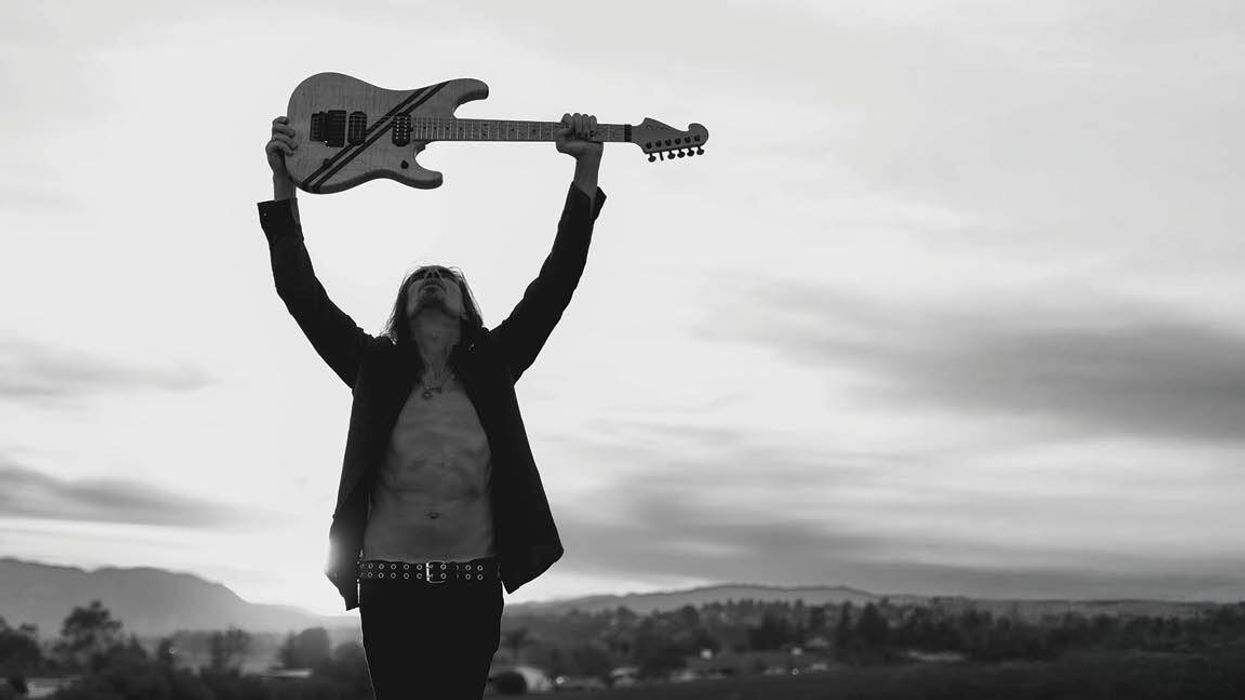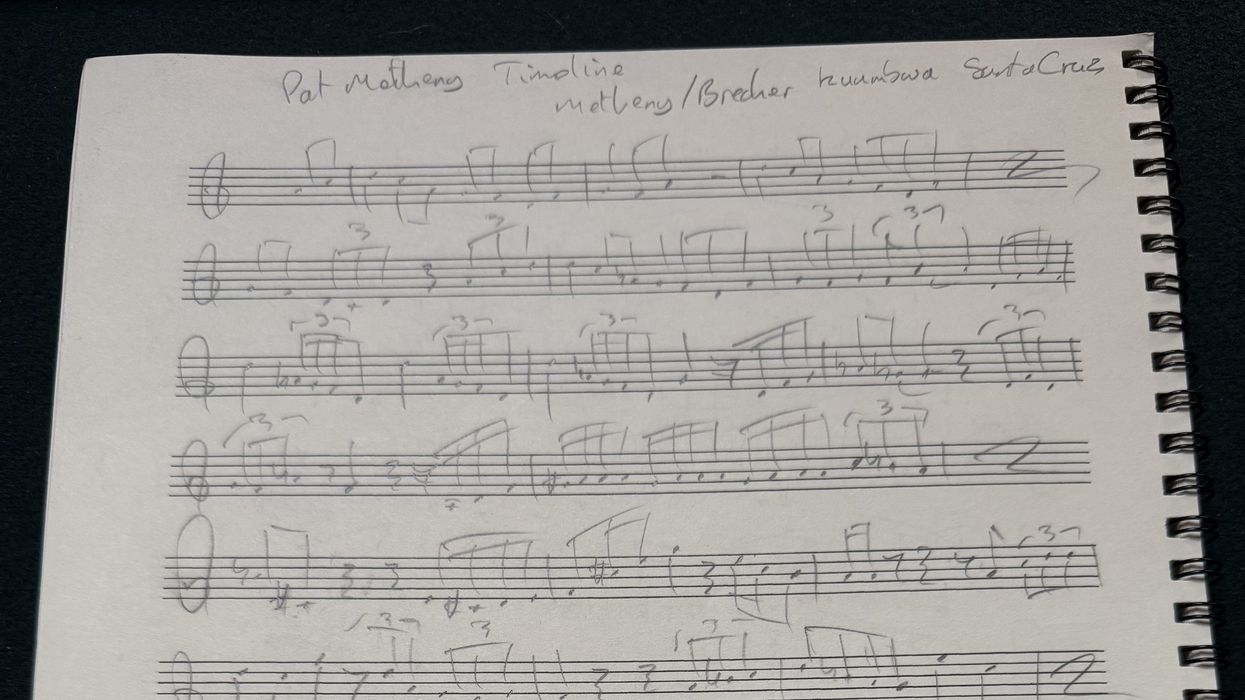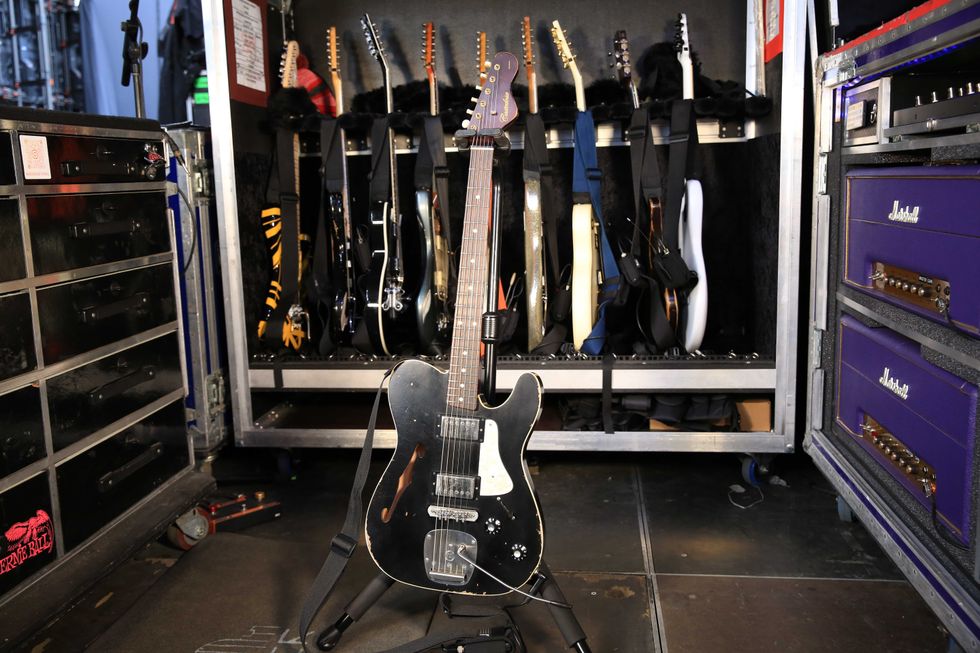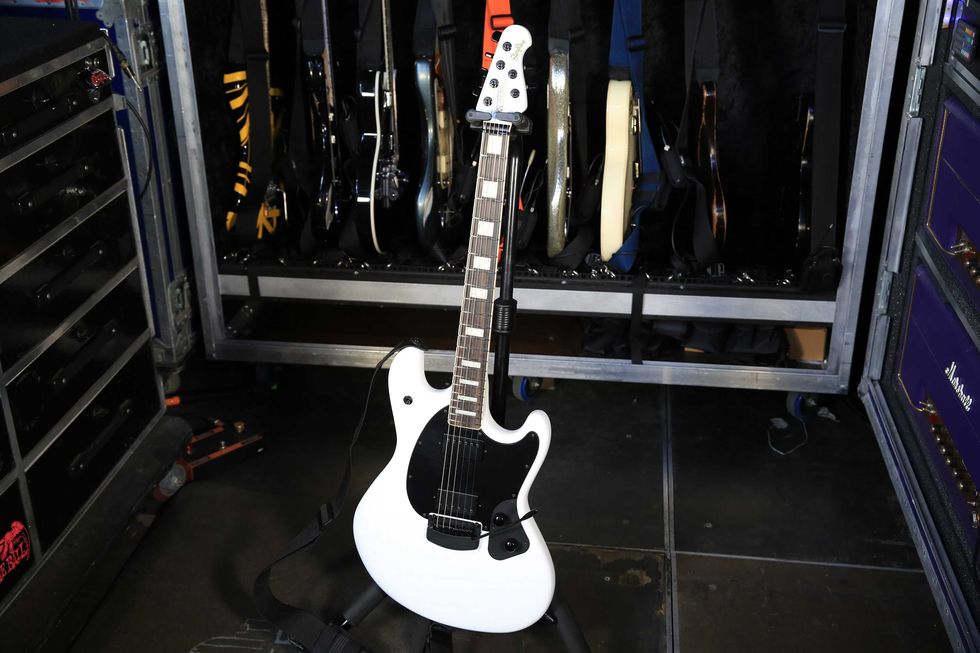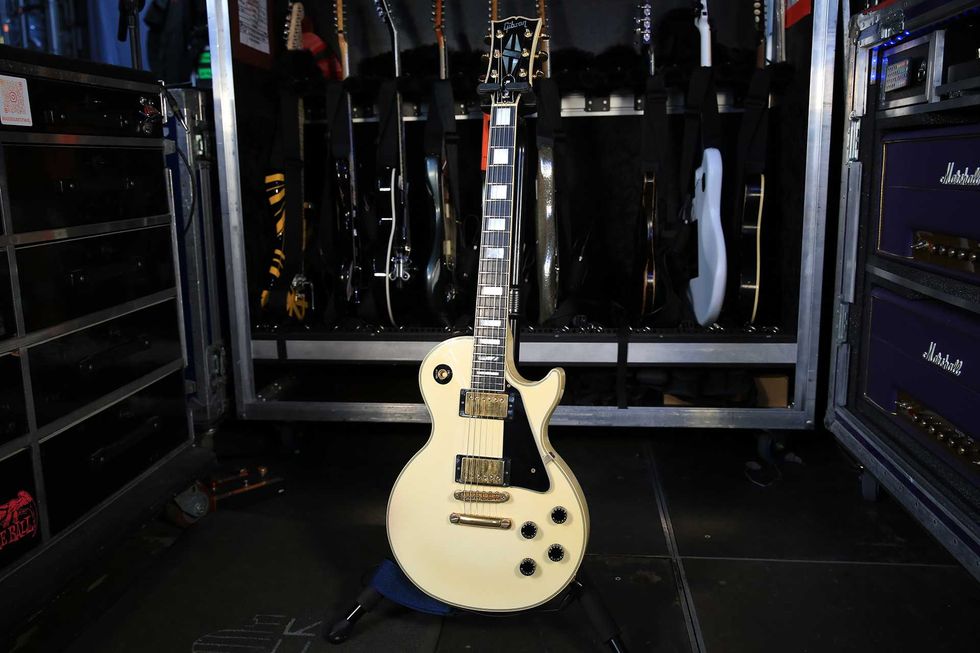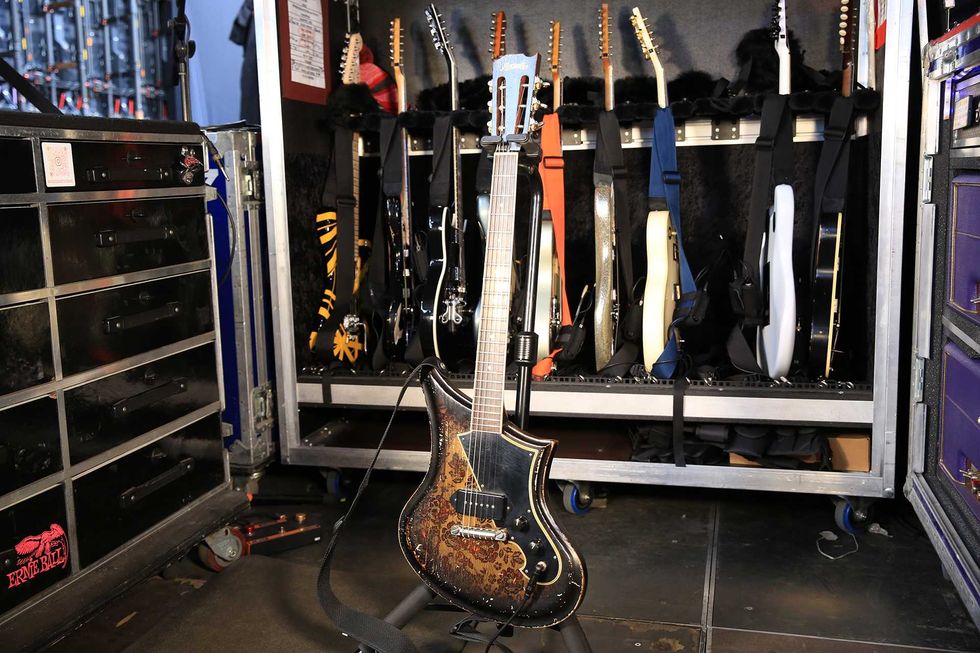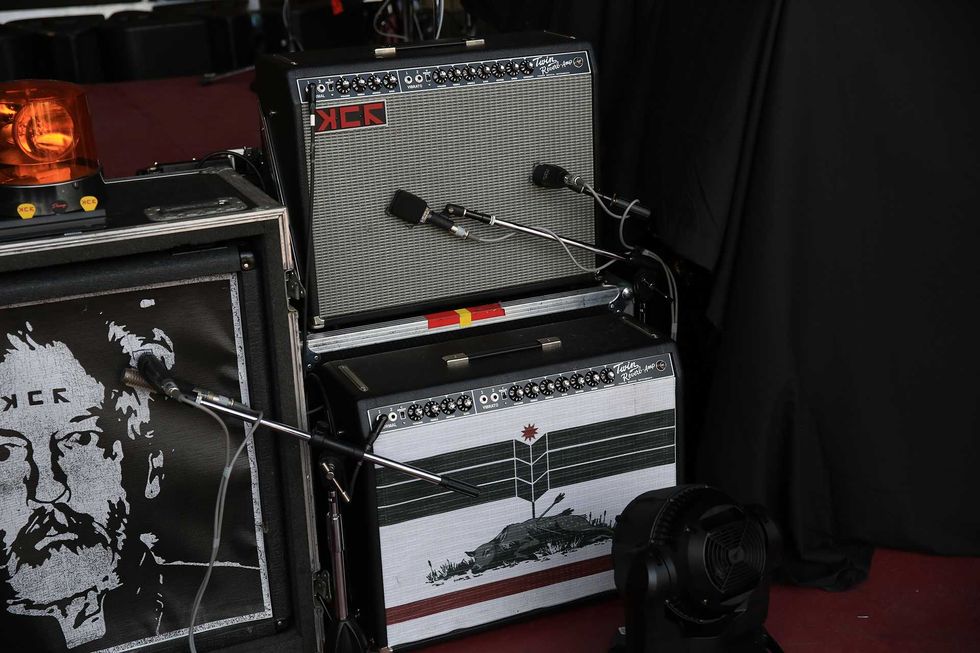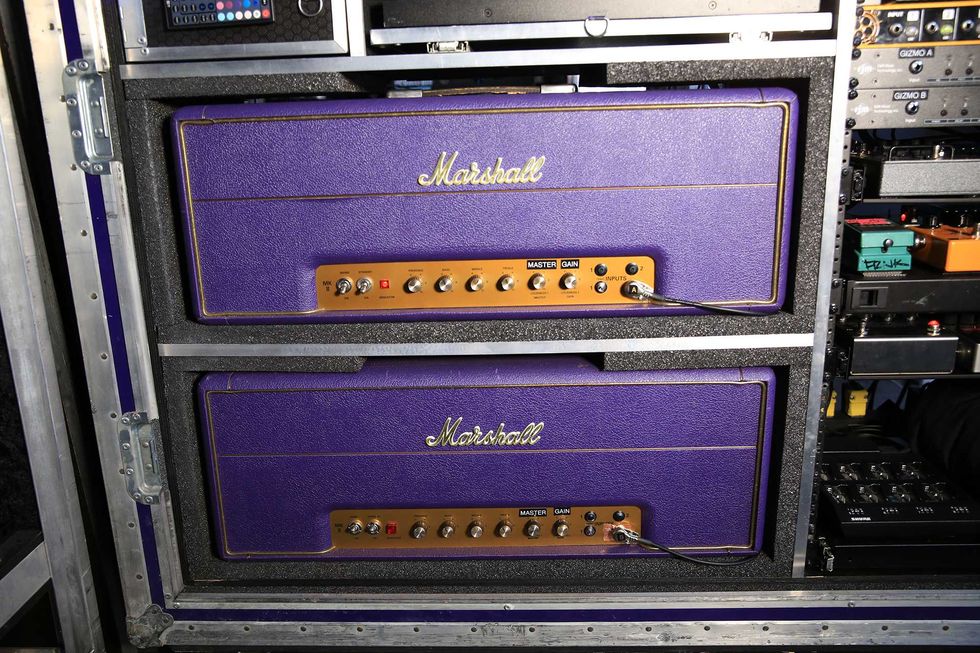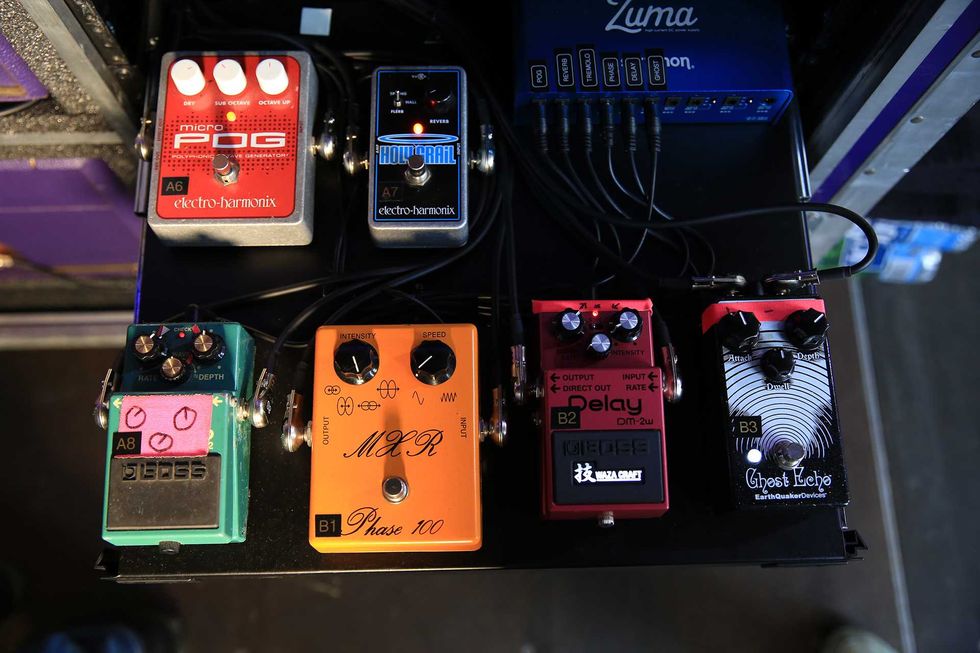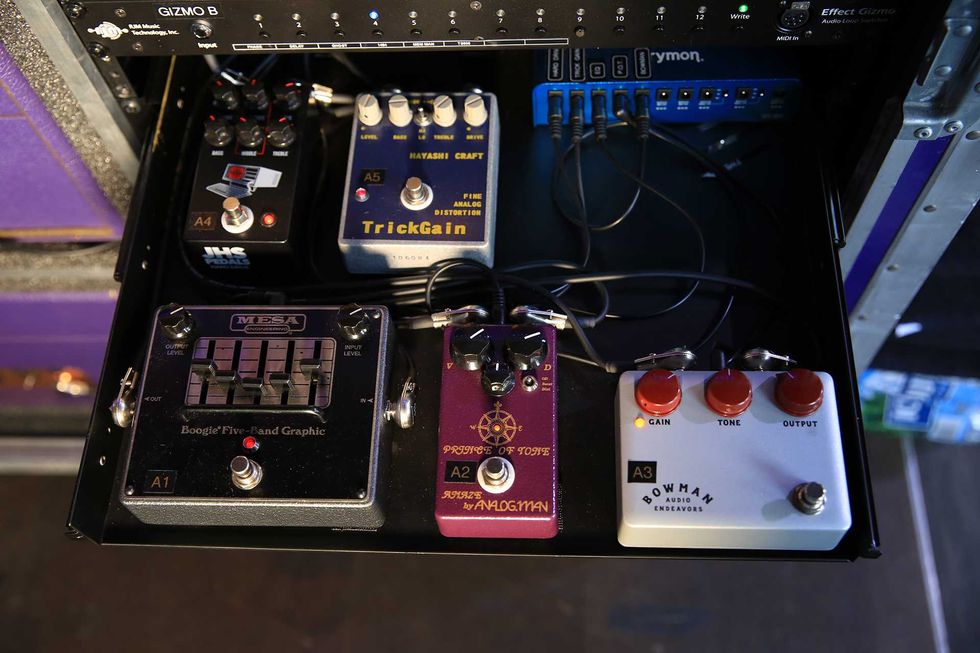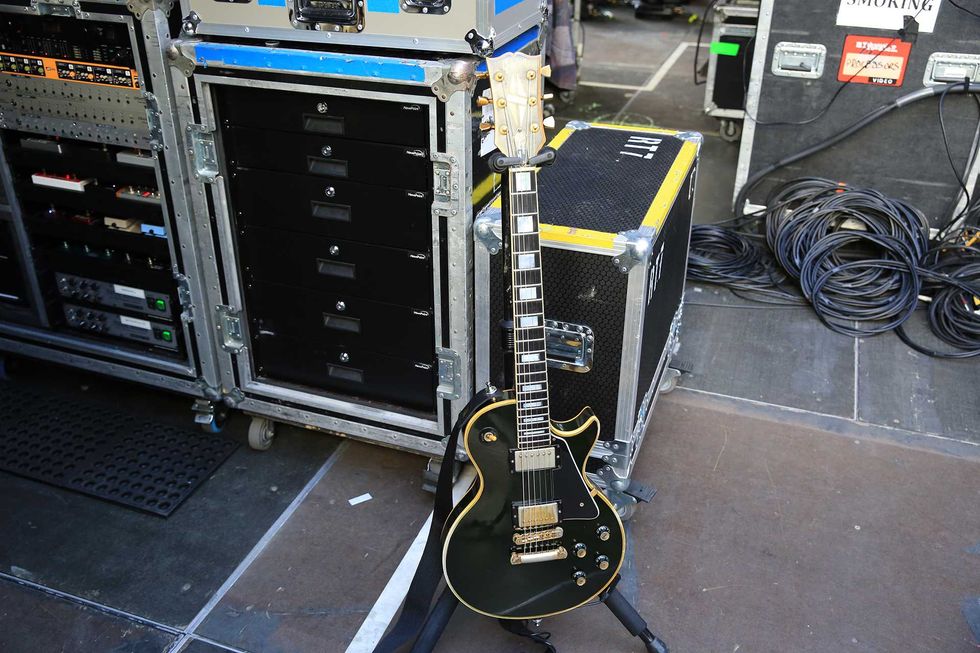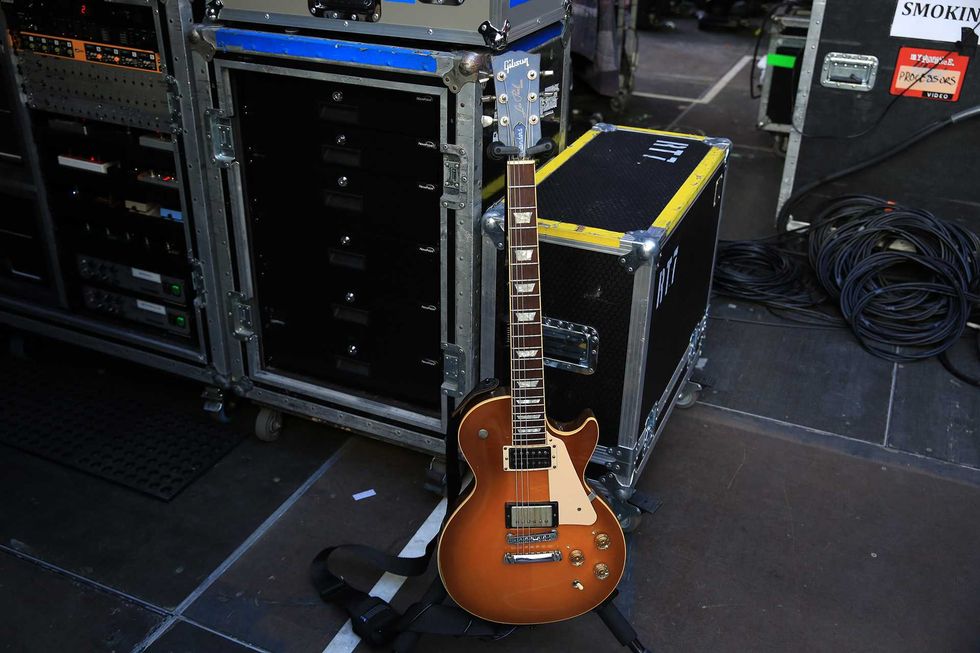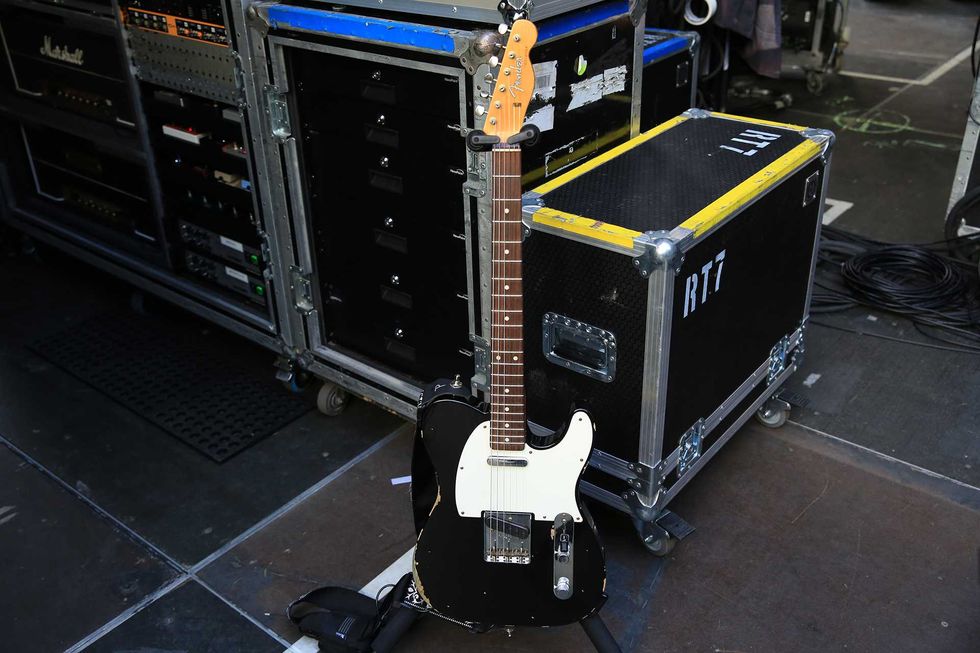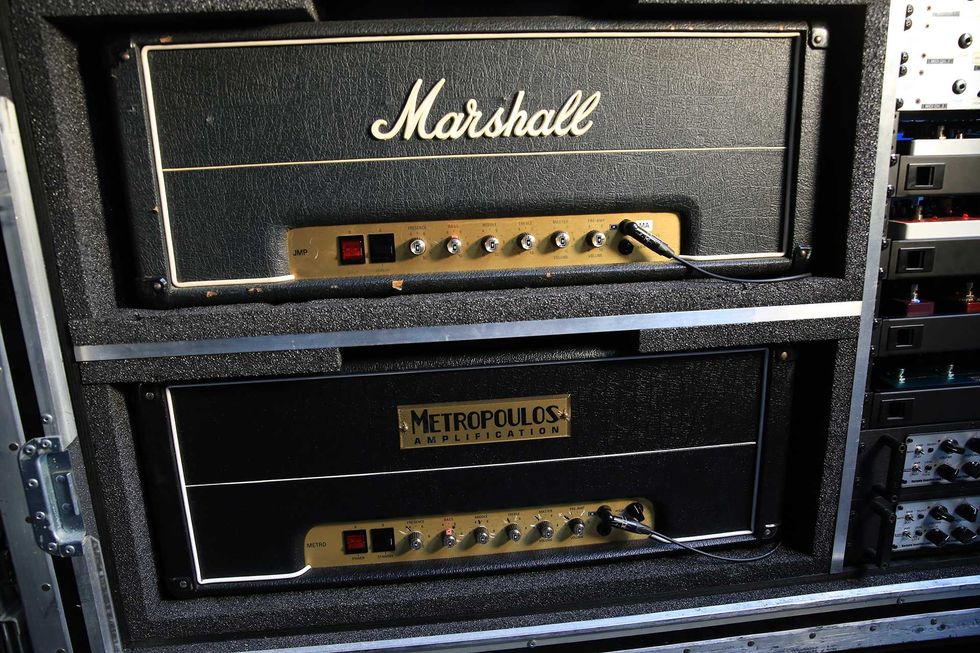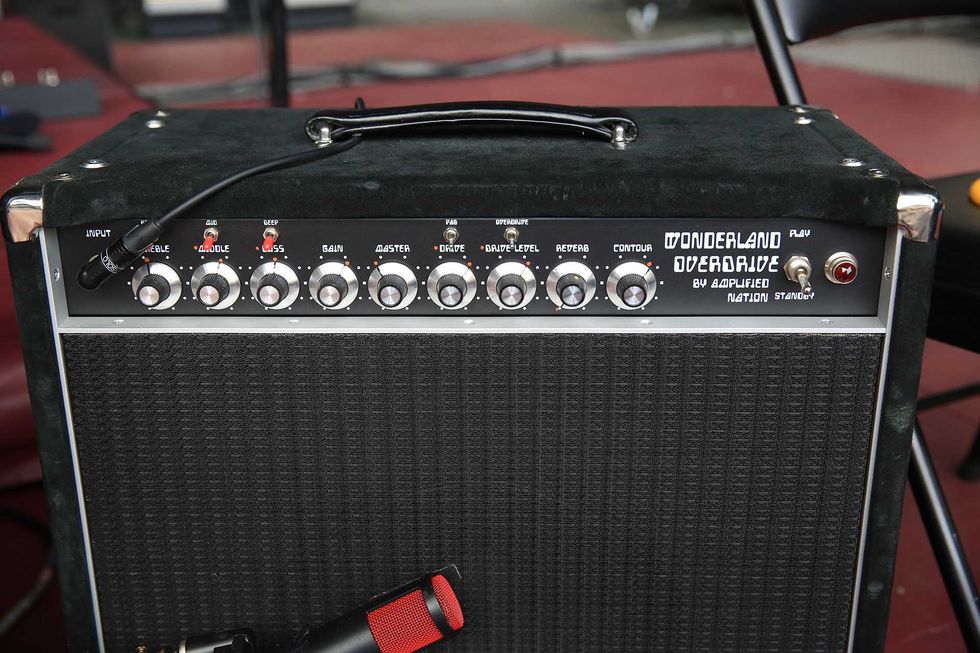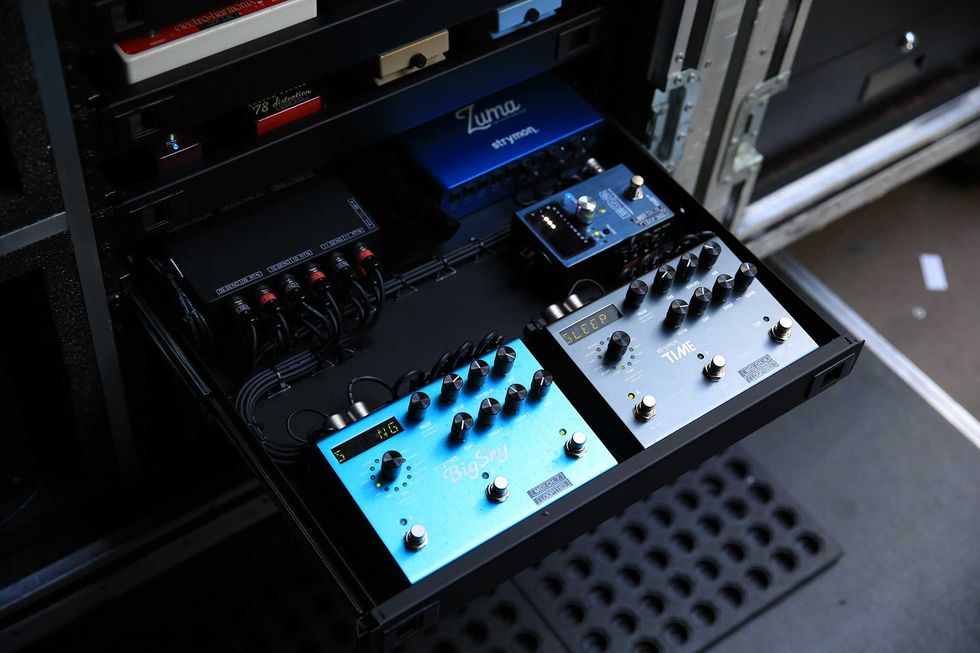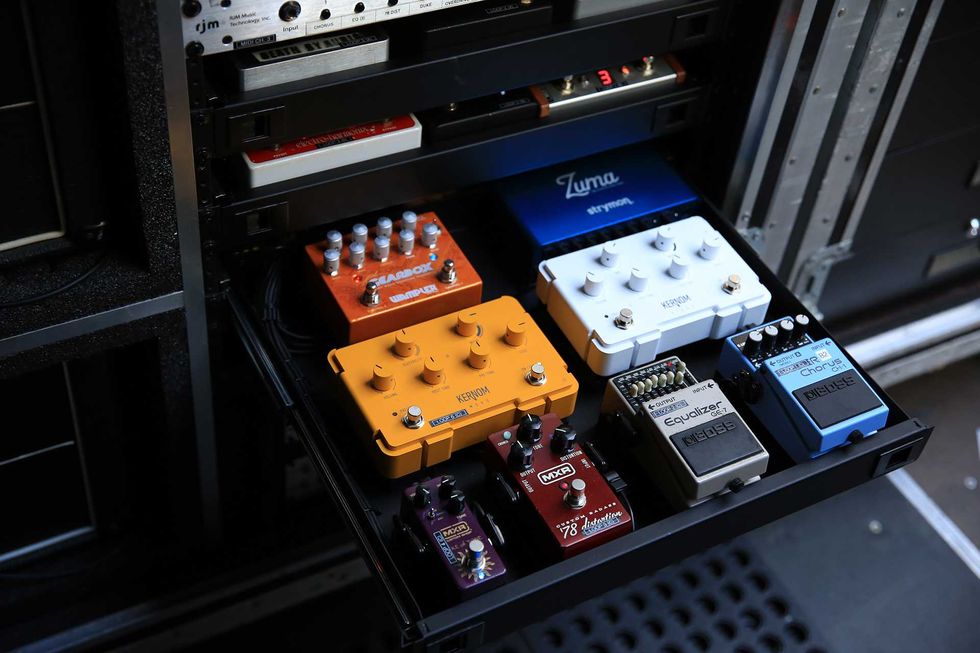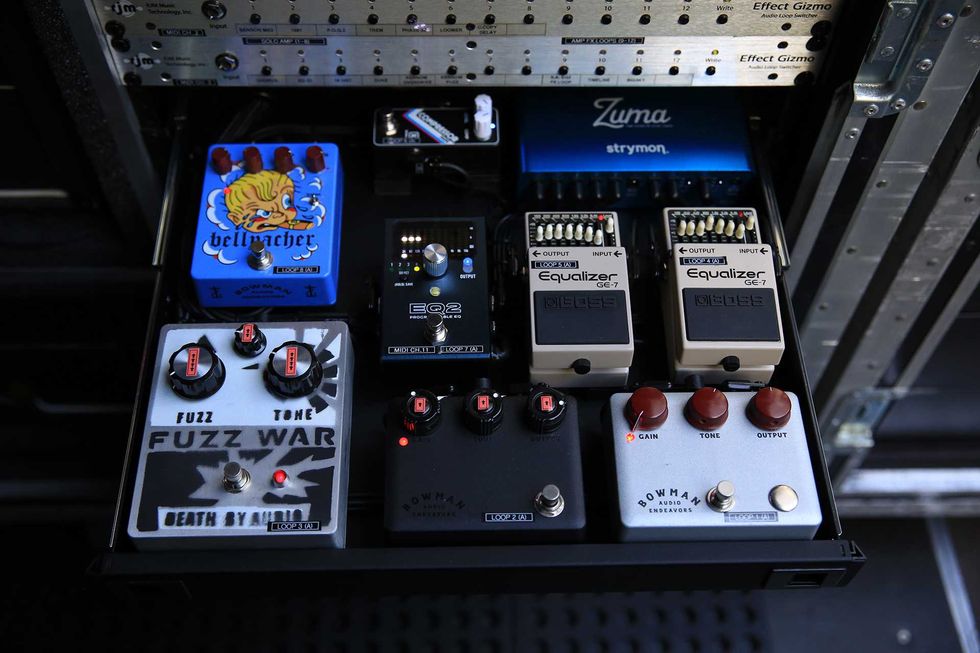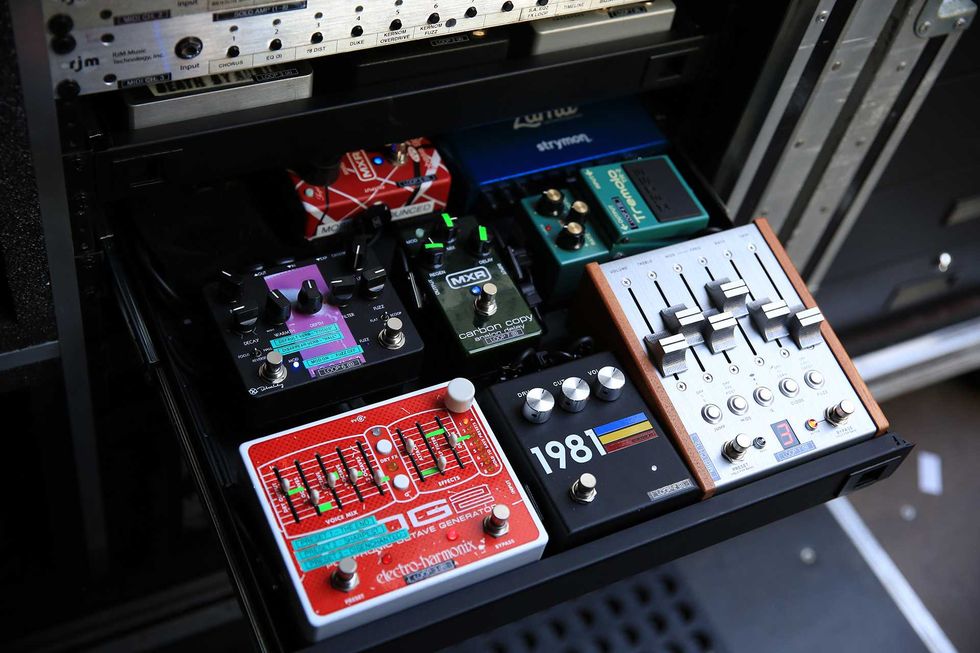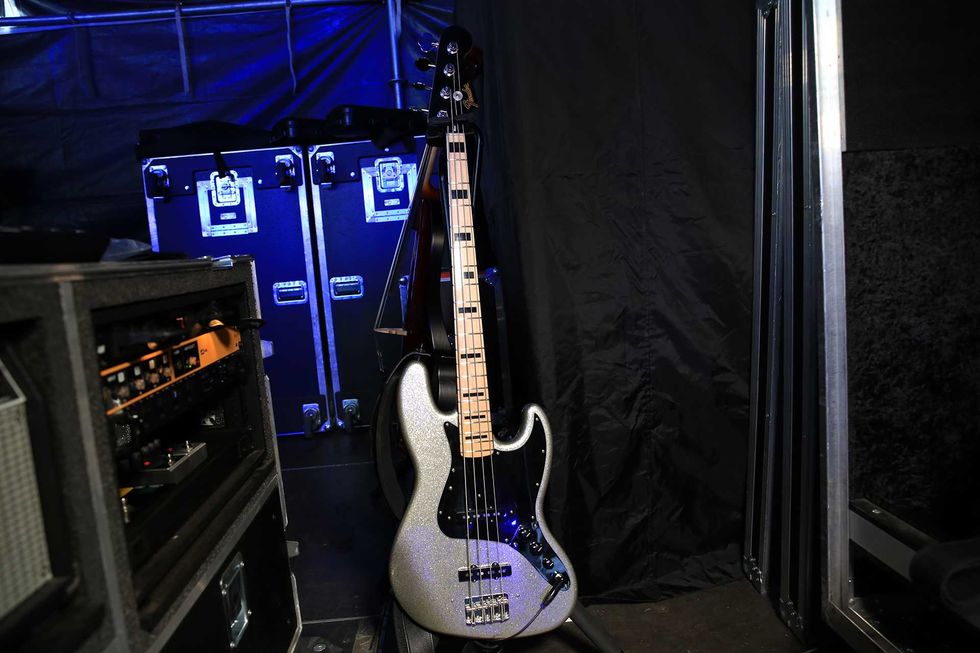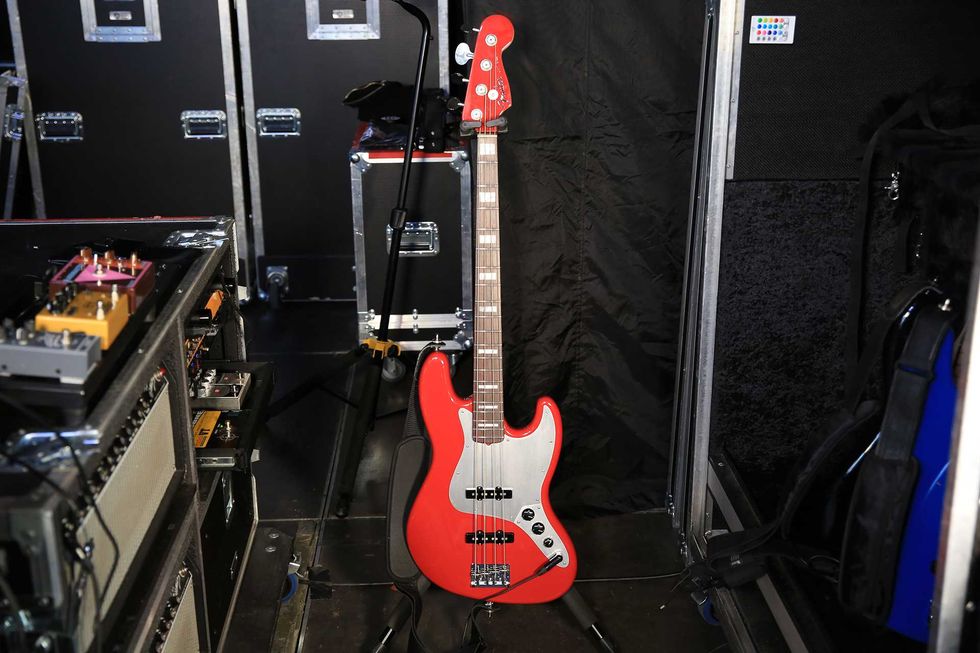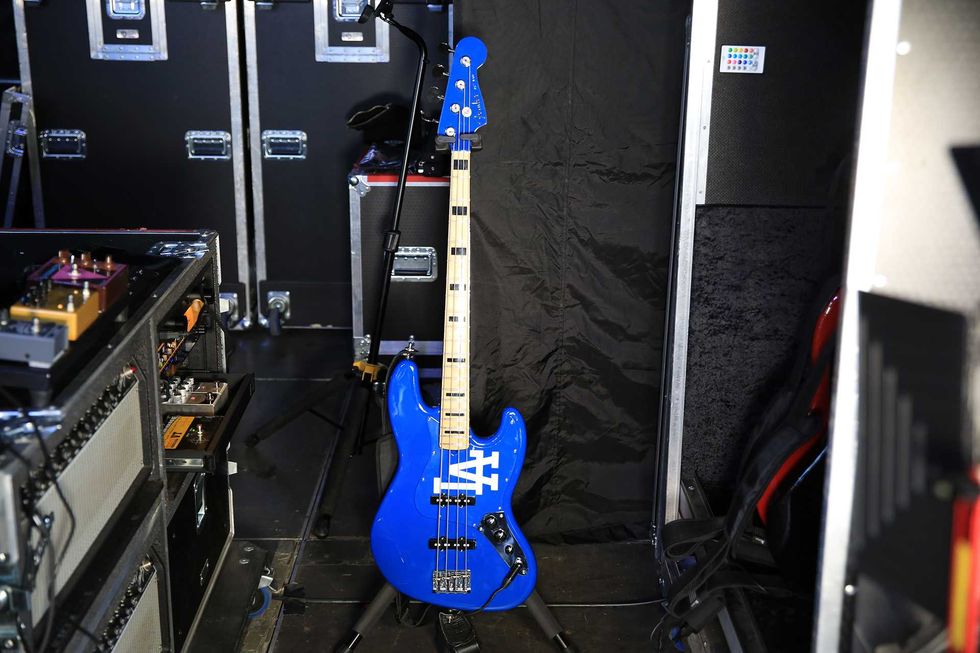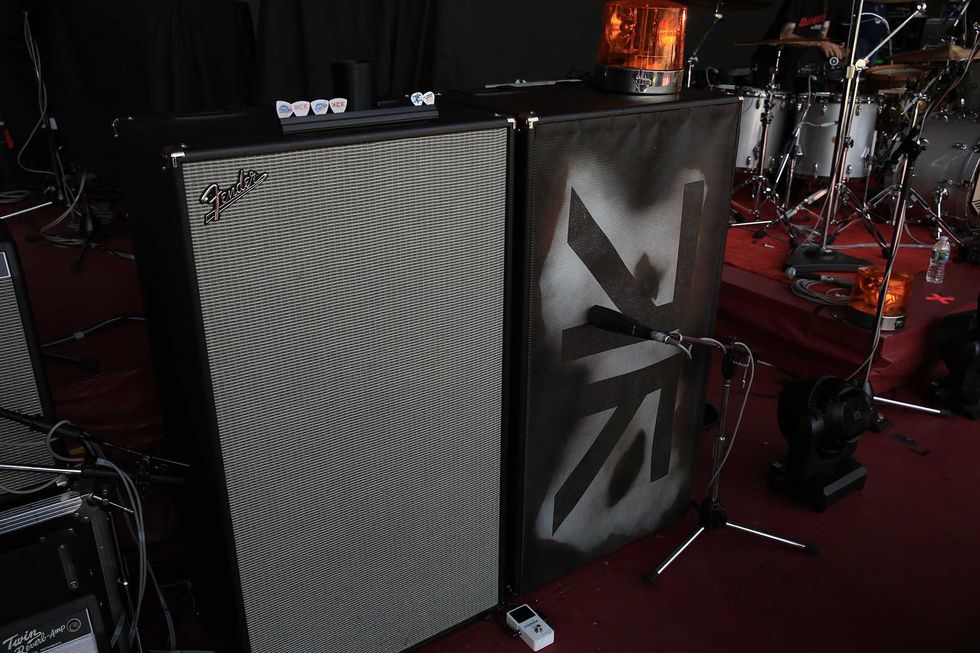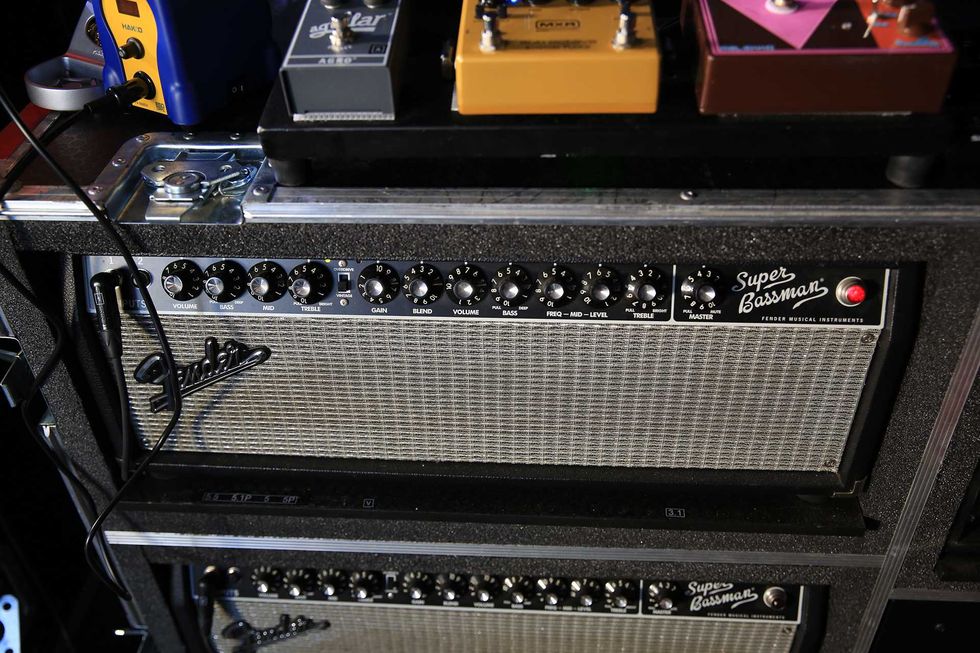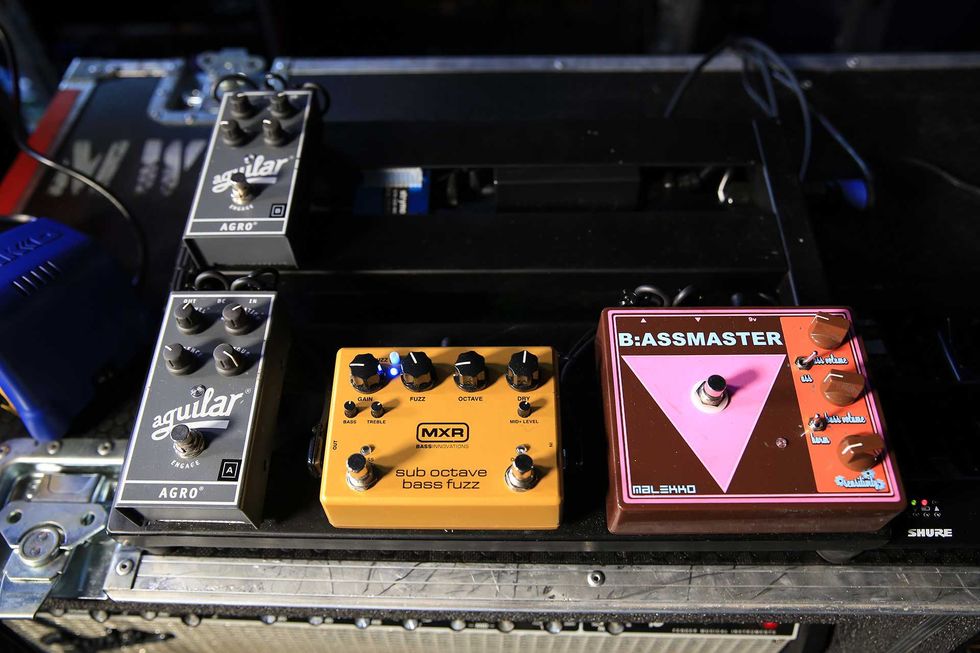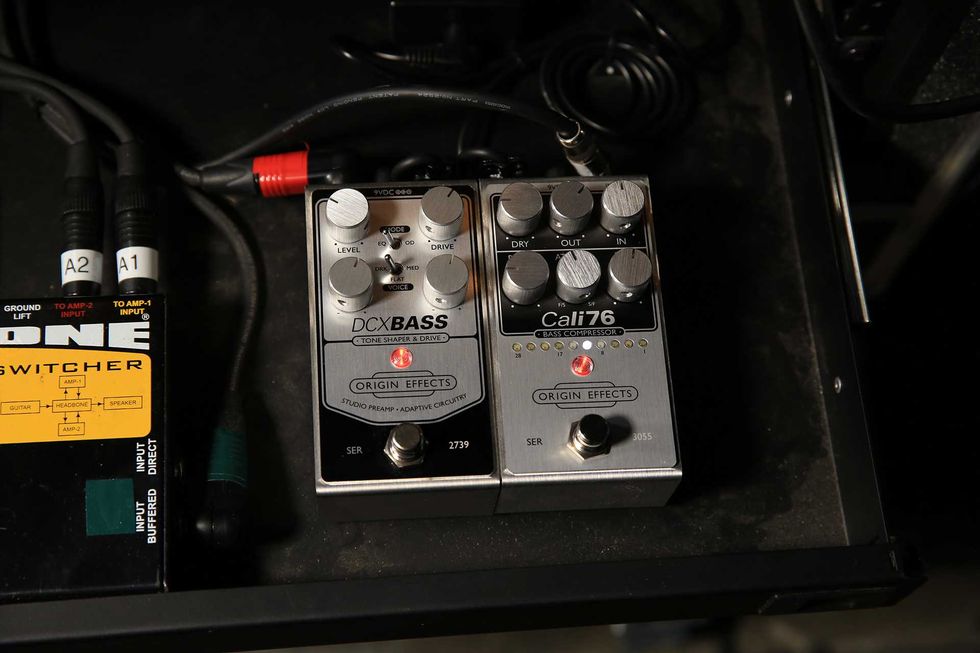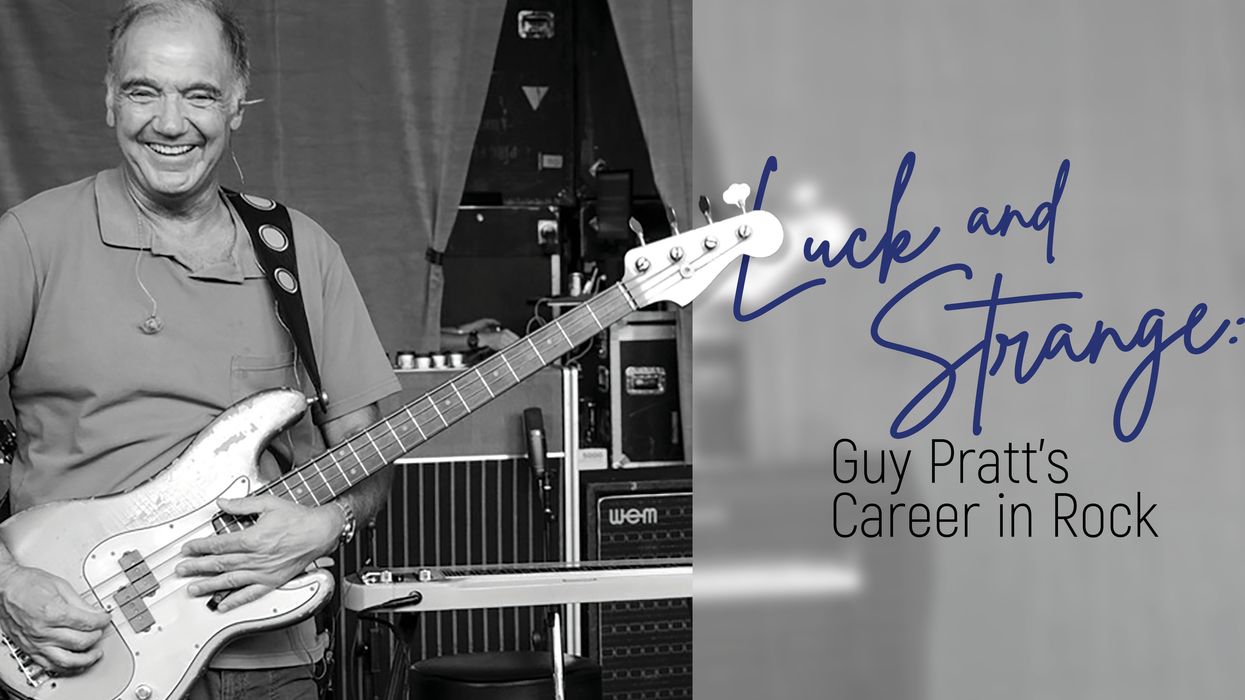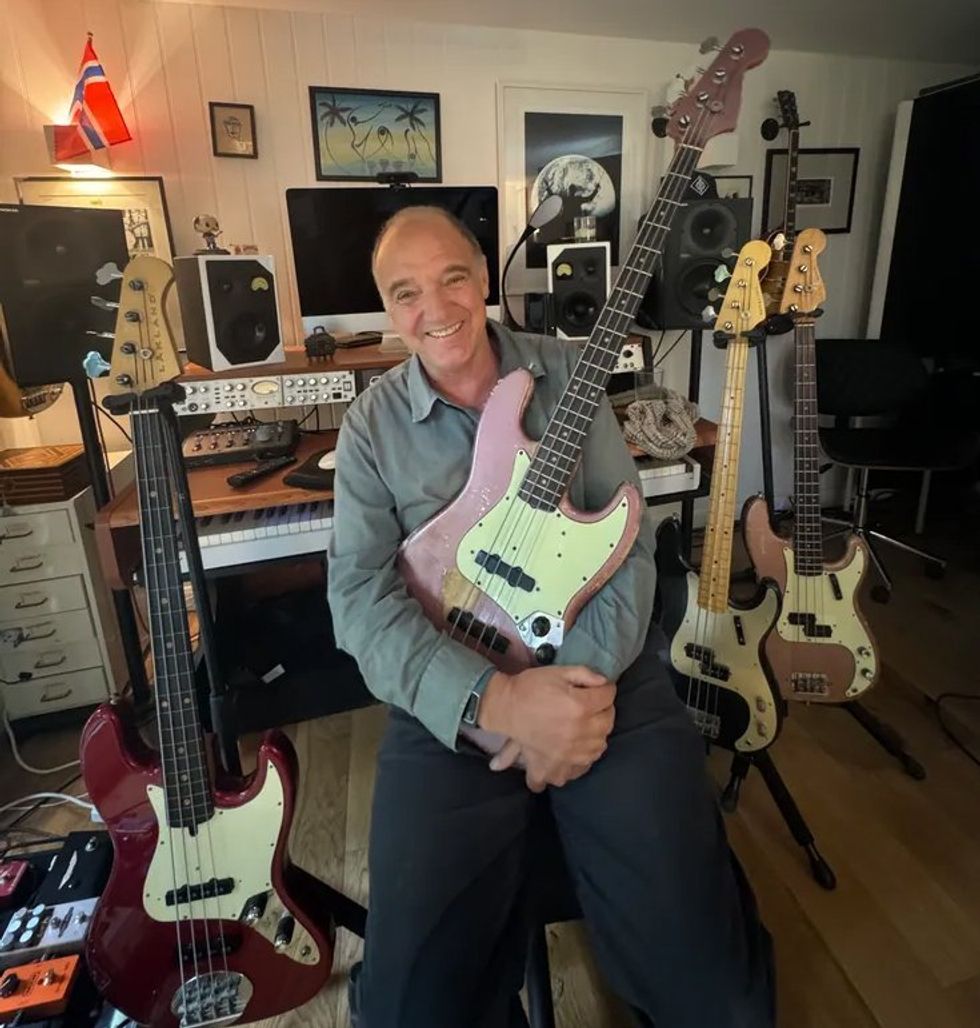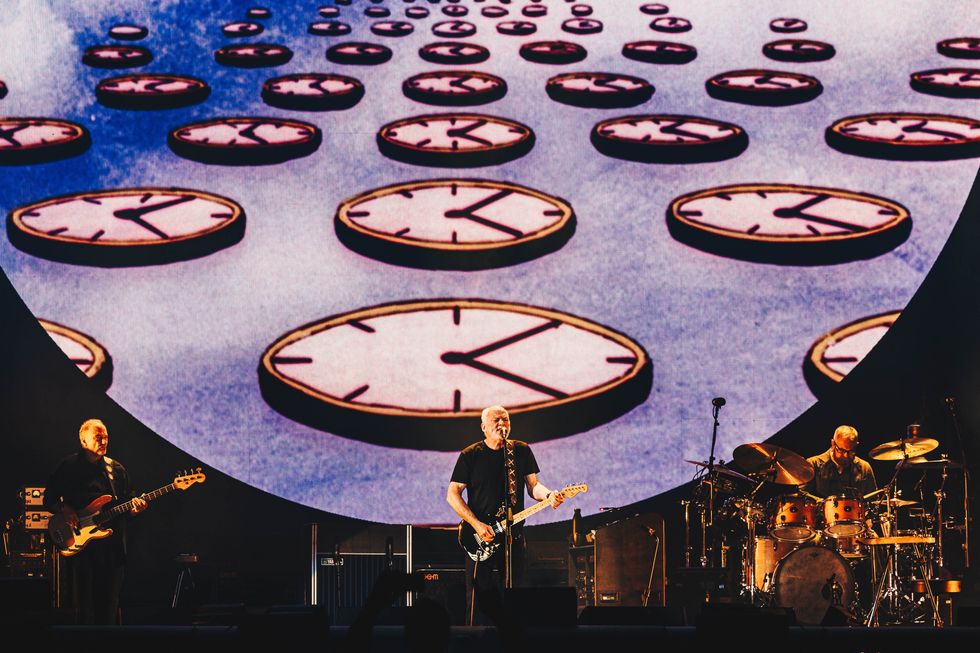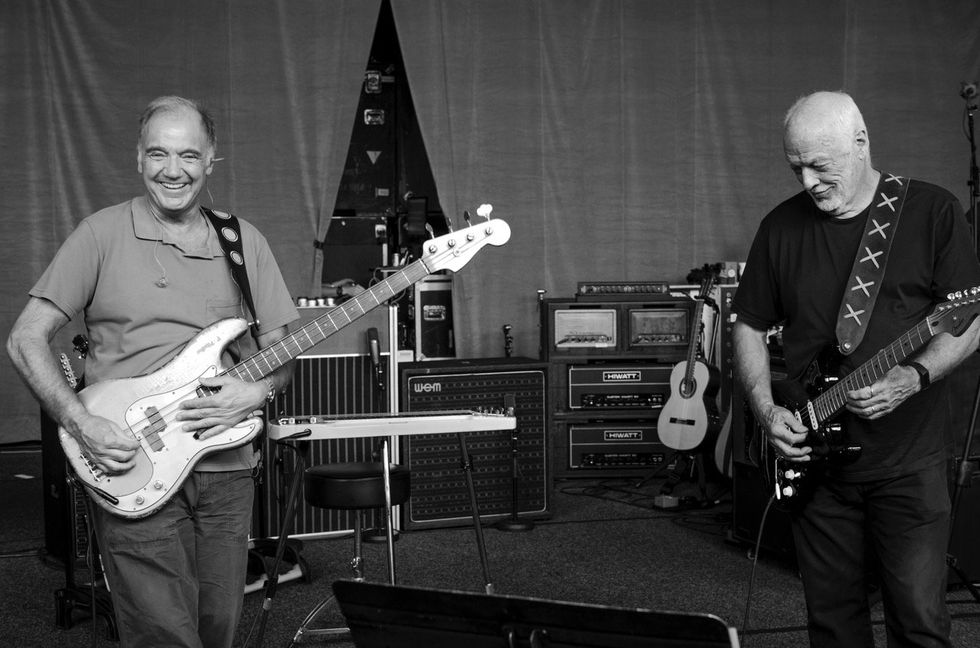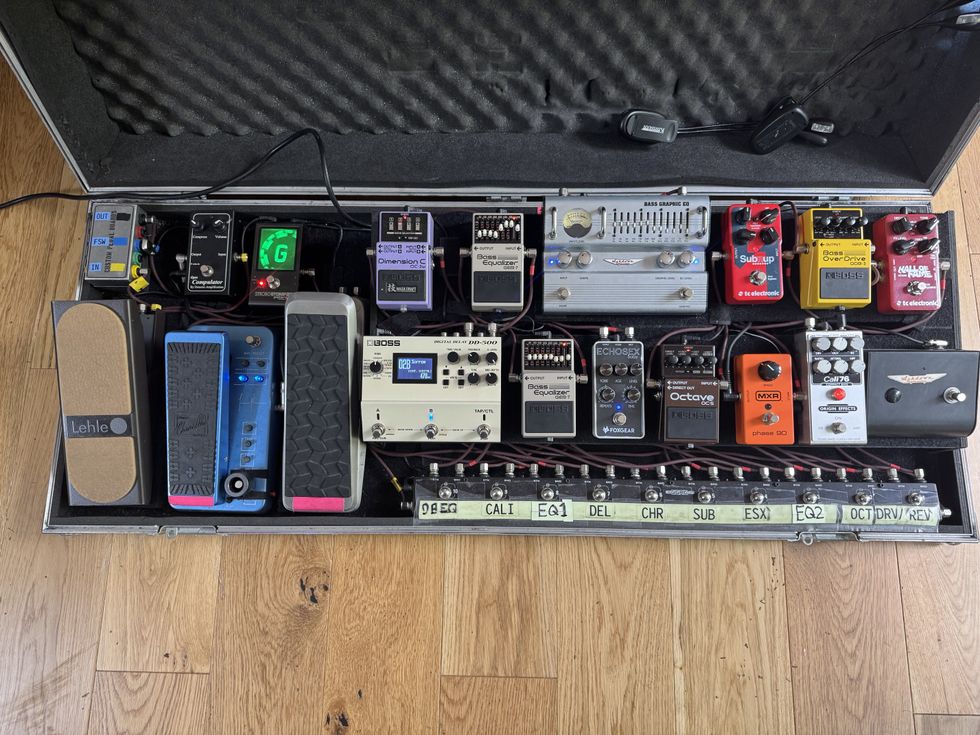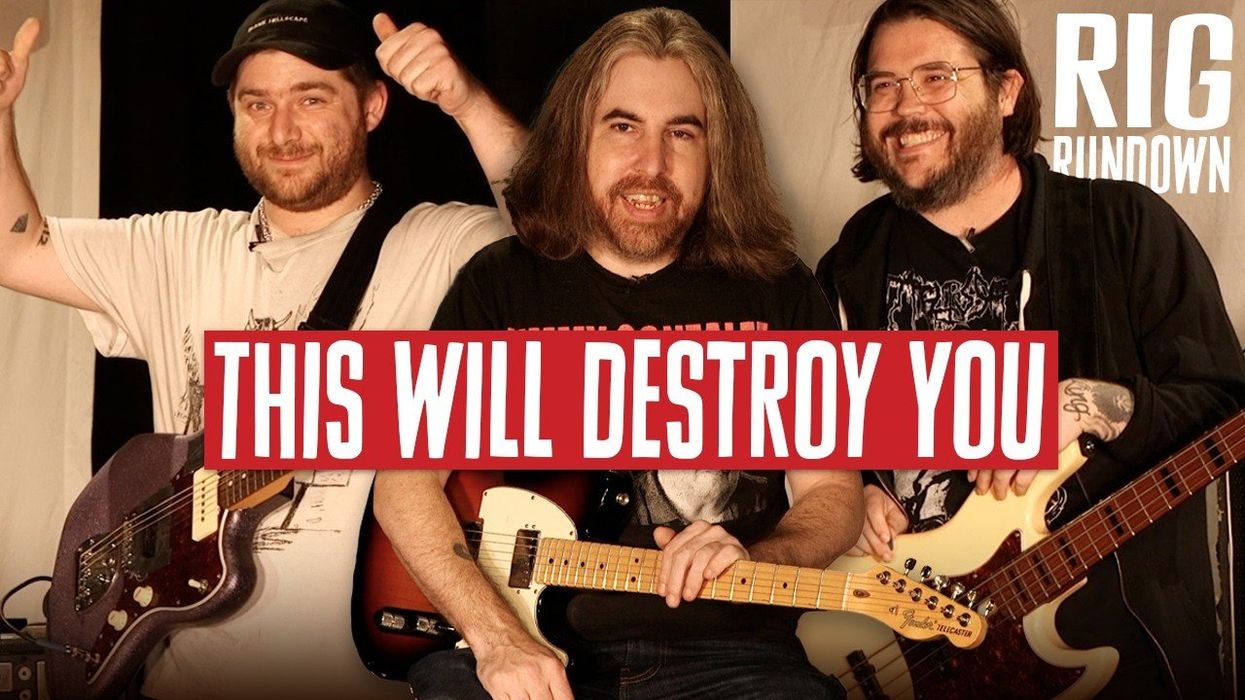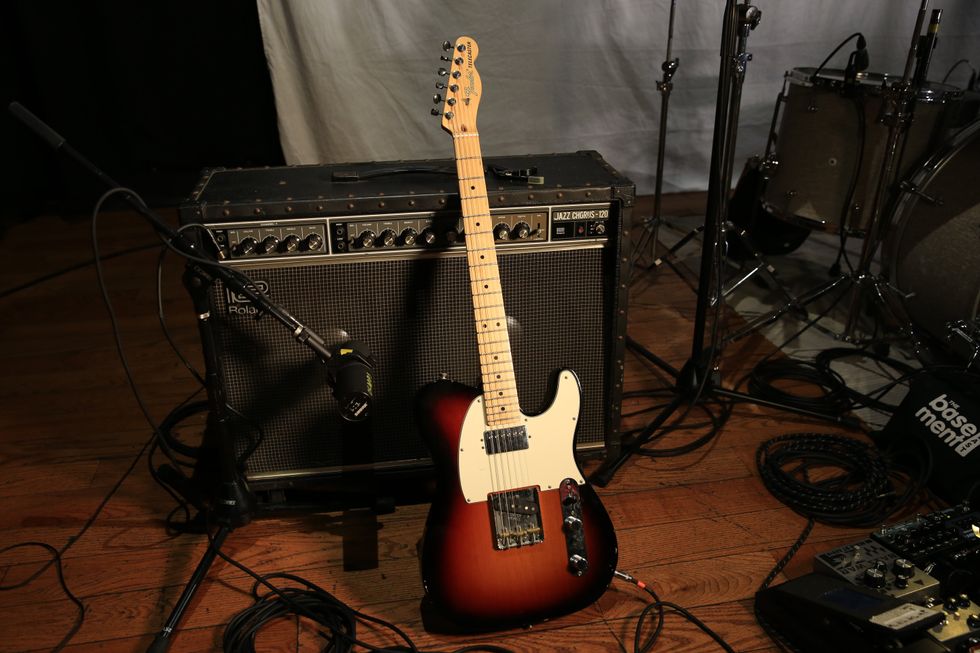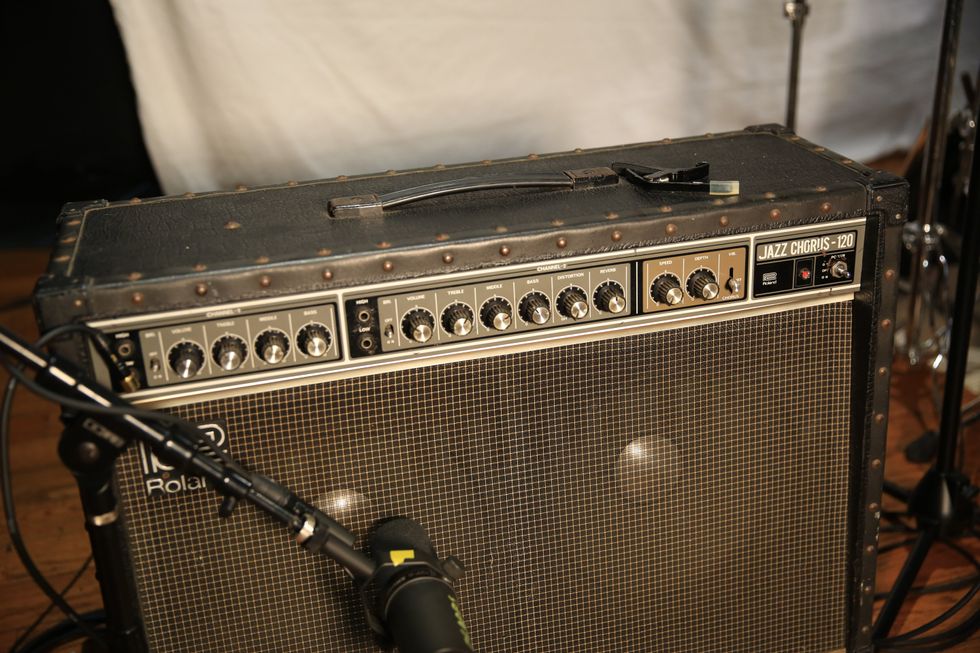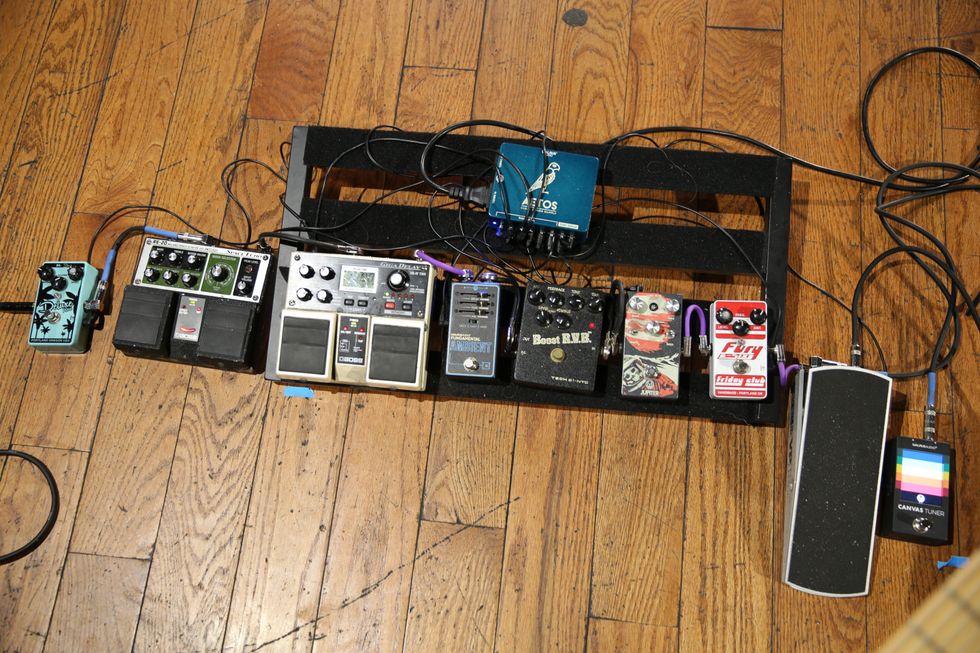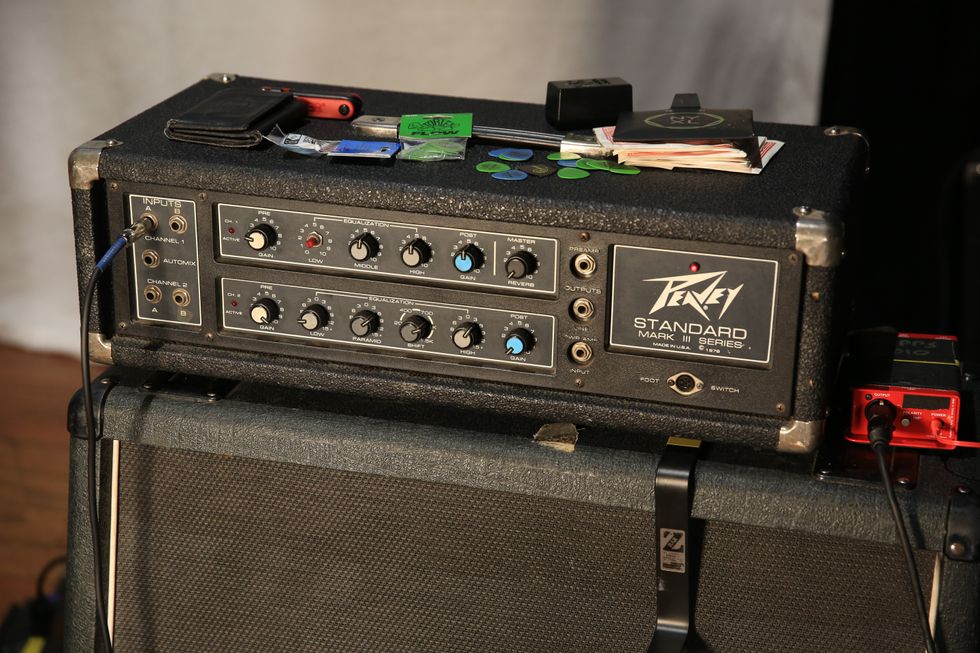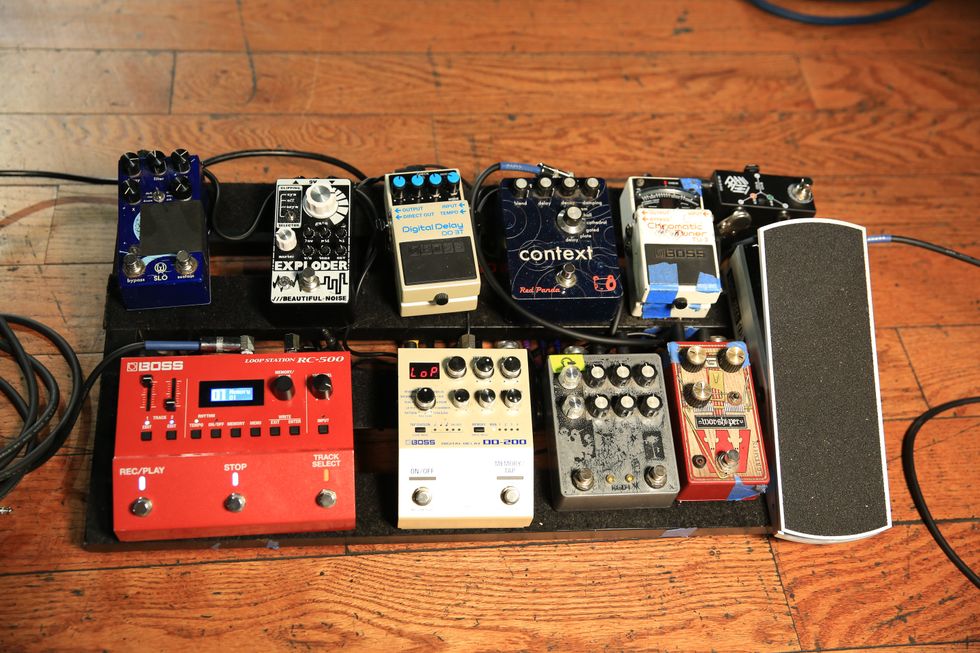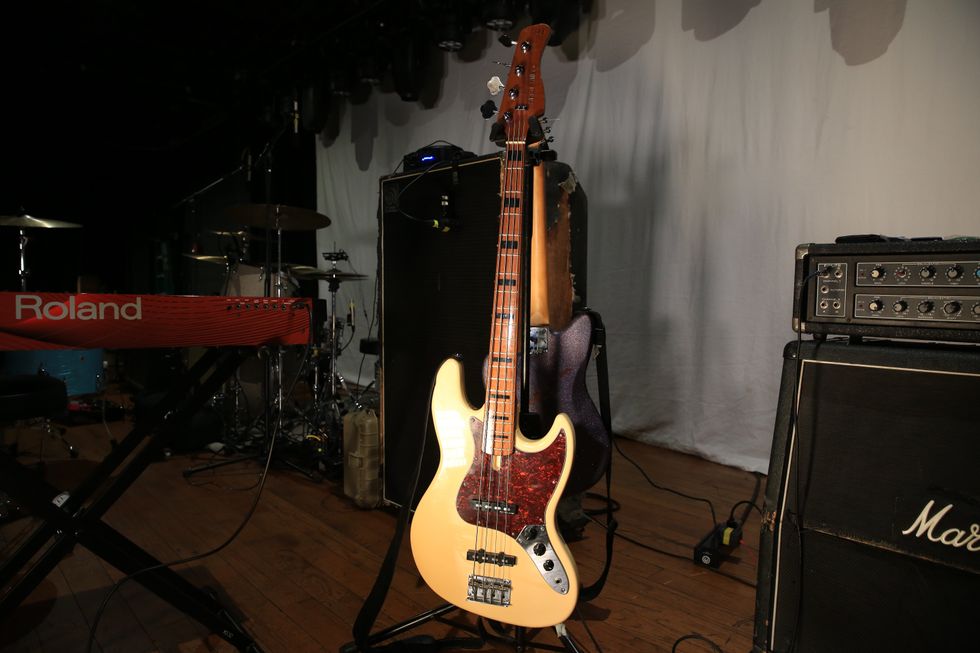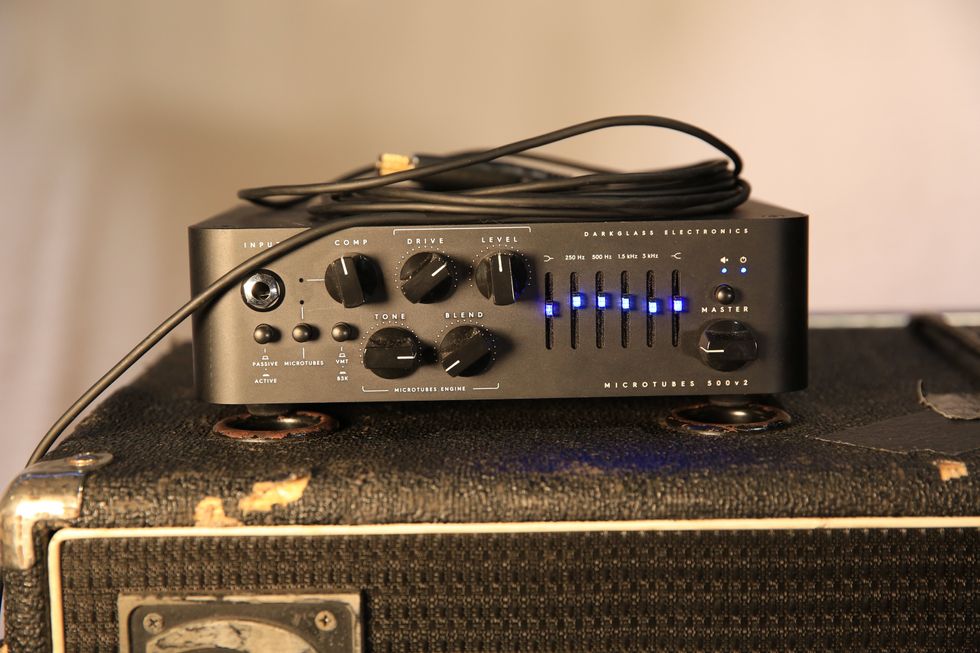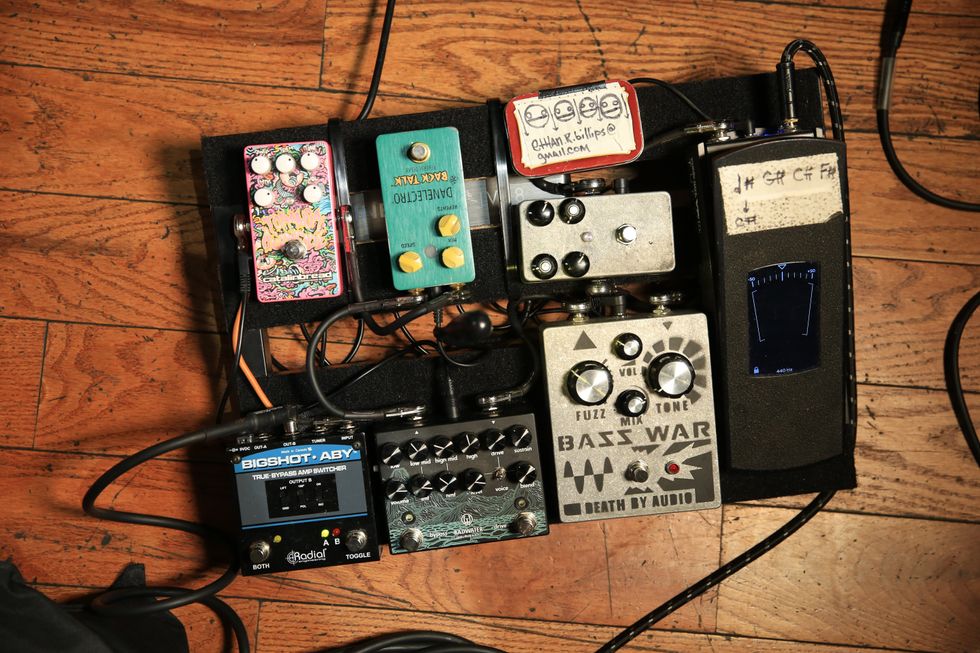“People usually call me a jazz musician, and that puts huge pressure on me. I feel stressed that people expect something from me, and I am still a work in progress,” says Polish bassist Kinga Głyk (pronounced Gwick), who released her first album as a bandleader five years ago, when she was just 18. “Some people write me asking if I give lessons, or make workshops, and I think, hello—I am still in the process of learning myself! I am not ready to do workshops or things like that. I need to learn a lot of things.”
Heavily influenced by Marcus Miller and Weather Report-era Jaco Pastorius, Głyk’s early playing was a showcase for her metronome-tight sense of groove, transparent ensemble work, and impressive soloing. That only got better as she branched out and developed her own voice, although she is still quick to downplay her abilities despite her formidable accomplishments.
“I prefer a 4-string bass,” Głyk says when asked if she’s experimented with additional strings or a fretless instrument. “When I am good enough on four strings, I will add one more,” she laughs. “I have a fretless at home, too, but I don’t play on it for now in public. I practice on it a lot, but I want it to be perfect. I want to feel comfortable with this instrument before I bring it onstage.”
Głyk’s father, Irek, well-known in Poland as a top-notch vibes player and drummer, not only encouraged Kinga to start playing music, but also played in and booked shows for the fledgling family band—which also featured her brother Patryk on drums—almost as soon as she began playing. As she notes in our interview, those early experiences were key to developing her formidable chops.
Released late last year, Głyk’s latest outing, Feelings, features guest appearances by keyboardist Brett Williams (Marcus Miller), Canadian electronica keyboardist Anomalie, and Instagram guitar sensation Mateus Asato. Not coincidentally, it also finds her stepping far out of the jazz box, especially on songs like the infectious “Joy Joy,” the unapologetically funky “5 Cookies,” and the quasi-classical “Classic.”
We recently caught up via phone with Głyk at her home in Poland to discuss her early experiences playing in public, how she ended up onstage trading lines with Miller himself, and how dedication and perfectionism permeate everything she does.
When did you start playing bass?
I started when I was 10 or 11 years old. I don’t know the exact time when I started to play, but we had a family band with my dad and my brother and I started on the stage. We were practicing at home with my dad—he showed us how to play—and he practiced with us for a lot of hours, and then he booked a concert and we started playing together. I think that was a great beginning for me, because being onstage taught me a lot from the beginning. It was a great experience to have that opportunity, and I was happy to be with my dad and my brother, because I felt comfortable and safe. We played a lot of concerts in Poland, in clubs. We also recorded a CD together with the family band.
Did he play both instruments with you?
With us he played vibraphone and my brother played the drums. When I was 18, I started to do my own group, but in a way we still have our trio. My dad is my manager—he was always my manager, but before he also was playing in my trio—and my brother is a sound engineer, so he is always with us on tour.
Why did you choose the bass?
I always knew I wanted to be a bass player. When I was a kid, I would stand in front of the radio and pretend to be a bass player. I love the low sound! When I was 10 or so, I asked my dad if he could bring home a small bass for me. I wanted to try this instrument with my hands. He said, “Are you sure bass is the instrument you want to play? Girls play piano, or violin, or guitar, or they sing. But they don’t play bass.” I said, “No. I am sure I want to be a bass player.” [Laughs.] But then he was really happy, because he could play with me on drums. He is really supportive of me.
How did you end up learning to play?
I’ve never been to music school. I learned at home, and sometimes I had private lessons, but I usually learn from the internet. Nowadays, there are so many lessons and exercise books, you can find whatever you want. It is really helpful for people who have never been to school. Plus, my dad is a musician, so when I have some questions I can also go to him and ask.
Who are some of your influences?
At the beginning, I was listening to a lot of Jaco Pastorius, of course, and then Marcus Miller, who I had the pleasure to meet face to face—that was crazy! [Editor’s note: Miller invited Głyk to perform onstage with him at the jazz festival in Leverkusen, Germany, in November 2017.] It was a huge challenge for me, because I have been watching him on the internet all my life. I was so stressed and excited at the same time. That was a dream for me.
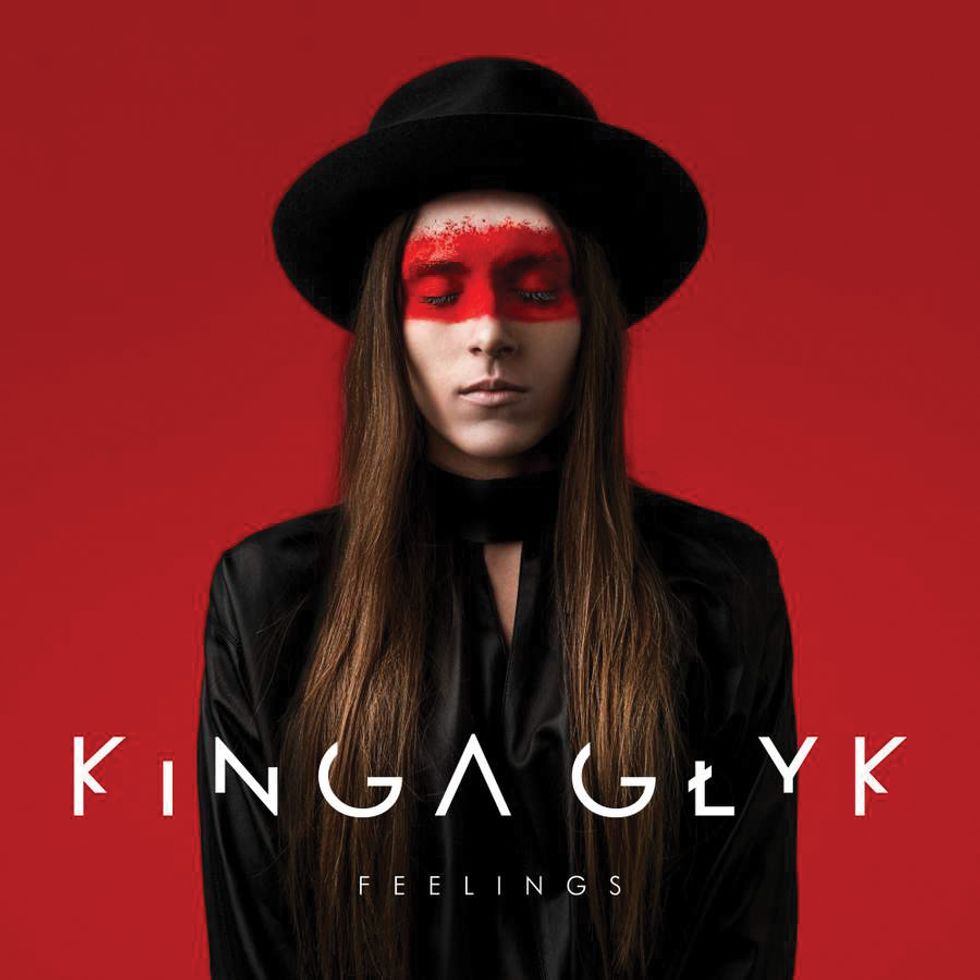
TIDBIT: Her latest album features guest appearances by bass legend Marcus Miller, keyboardist Brett Williams, electronica artist Anamalie, and guitarist Mateus Asato.
Have you studied sight-reading and theory?
I try to develop this knowledge because it is really helpful, and I want to improve my knowledge about music. Sometimes I sit and try and learn it by myself, but it takes a long time for me. I want to be perfect in it. I try to read from sheet music, and it’s my goal for now. I am trying to develop my understanding of harmony—I play it on piano and I can read—but just for my ambitions and to feel more comfortable onstage. Maybe in the future I will play with other bands and I will need that knowledge.
So you play piano, too?
I try to, because that is the best way to develop harmony and knowledge about music and to hear the chords together. On bass it is not so easy to play chords. I can do it, but you can’t hear the harmony very well.
What are your thoughts on techniques like slapping or tapping?
I am on my way to developing slapping. I am a beginner with this technique, because in the past I was so afraid to try and slap. I figured that there are people who are bass-slapping heroes, so I shouldn’t start, but now I want to have fun with it. I try not to compare myself to anybody, and I don’t feel pressure, like, “You have to be perfect and you can’t make mistakes.” I like every “color” on the bass, and I think it is cool when people use different techniques. When bass players take solos in front of the band, it is important to give to the audience different techniques and sound.But, for me, the first place for the bass in the band is in the back with the drums, to glue everything together and to keep the bottom notes. From there we can create lines—melody lines—but the first role of the bass is with the drums, and to not overplay. When we have our chance to show our skills, we can do that, but we have to remember the role of the bass.
Besides the excellence of Glyk’s still-growing musicianship, her palpable delight for playing is an infectious part of her appeal. Her song “Joy Joy” is a literal incarnation of that. Photo by Krzysztof Grabowski
Onstage, which instrument do you primarily listen to? The bass drum?
Yes, and that is because of my dad. He told me all the time, “You have to listen to the main drum. You have to keep the same rhythm with me, because the bass is the heart of the band, and you have to be focused.” The bass and drums should be together as one. They should have one blood.
Do you have a special chemistry when you play with your father?
He’s probably the only person who I always know what he is going to play. That was a really nice thing when playing onstage with him, because we have one blood and we practiced a lot for fun at home. He knows me really well, too, so he catches my ideas when we are onstage. I think that is the power of bands that play together their whole life. They know each other well and speak each other’s “language.”
What’s your approach to soloing? Do you view it as a chance to use more complex harmonies or rhythms?
Sometimes. I don’t always know what I am playing, because I am a really emotional person. Sometimes I just play what I feel—I don’t think about harmony or the structure of the chords. If I want to play totally crazy notes, I just play, because I feel it. For my knowledge, I want to practice [sophisticated harmonies and rhythms], because sometimes it is useful to know what you’re playing. But I am really emotional, so usually I play from my heart.
What styles of music do you listen to other than jazz?
Not heavy stuff—not hard rock or anything like that—but a lot of pop songs. I love to do my own bass lines to really popular songs. I appreciate the creativity of people and I want to listen to new things. I also like older stuff, like Level 42, for example. The bass lines in old songs are always cool. Stevie Wonder, Tina Turner, and even Michael Jackson—their songs have a lot of great bass lines.
“Joy Joy” is a great example of you leaving the jazz box. Are you trying to move more in that direction?
Yes. I was thinking recently and I decided I don’t want to be called a “jazz musician.” Jazz puts a huge emphasis on progressing—in your knowledge of the music, the history, the harmony. That is a good goal for me to know all this stuff, but I am just a person who loves music. I want to create music—not jazz, but music.
You have a few incredible guests on Feelings.
Yes. I met Brett Williams onstage with Marcus Miller, and then wrote to him on Instagram. He recorded at home—or in the studio—and then he sent us the tracks. Most of the people [on the album], even Anomalie, I contacted through the internet. Mateus Asato, too. He recorded his tracks from home as well. I’ve never met him. I’d really love to, because he is one of my favorite guitarists. I remember the day he wrote me—I was so surprised. It was more than a dream that Mateus Asato wrote me.

Basses
2006 Fender Jazz Bas
Gibson EB-3
Amps and Effects
Kemper Profiler Stage
Strings and Picks
Europa Sound .045–.100 sets (roundwound for the J, flats for the EB-3)
What did he say?
His brother showed him a video of me playing, and he wrote that he liked my way of playing the bass. I was super inspired. I practiced even more because he liked my way of playing! He has his own language with music. He’s really recognizable when he plays. When you hear his songs, you know that it is Mateus Asato playing.
How did you record your tracks and the parts with your group in Poland?
We were in the studio for three or four days with drummer Calvin Rodgers, who is on every song. But most of the tracks were recorded at home, and we were sending tracks to everybody. My previous album is totally live in the studio, but this one was more of a production.
When you record, do you use an amp or go direct?
In the studio, I used an amplifier. It was handmade by a guy in Poland, and he created a really good-sounding amplifier. But when I record stuff at home, I use only the Universal Audio Apollo as a preamp, and it is connected straight to my computer.
What amp do you use onstage?
Onstage, I only use the Kemper Profiler Stage and in-ear monitors.
What do you like about Fender Jazz basses?
I’ve always loved the Fender brand, from the beginning that was my only choice. I feel a connection with this instrument. I tried different brands, but this one fits me really well. It is my favorite, and I really like the sound and the look. I also have a Gibson EB-3 with flatwound strings, so it sounds really soft and clear. I use those two basses most of the time. My Fender is from 2006, and it is made in Japan. My dream is to have a really old Fender Jazz bass made in the U.S.A. Maybe in the future I will find something.
What are you working on next?
I released albums every year when I was 18, 19, 20, and 21—and then I took a short break from albums. For now, I am focused on doing things with my band. I am still trying to find my own path in music, but I will for sure create a new album soon. I would also love to come to the States, too, but it’s not so easy!
Kinga Głyk’s Jamiroquai-esque lines on “Joy Joy” are as infectiously upbeat and fun as the video’s quirky Napoleon Dynamite vibes.
Slap virtuosity, guest keys from Anomalie, and a loving nod to Rick James’ “Super Freak” are just some of the goodies in wait on Głyk’s “5 Cookies.”
Głyk tackles bass legend Jeff Berlin’s arrangement of Eric Clapton’s “Tears in Heaven.”


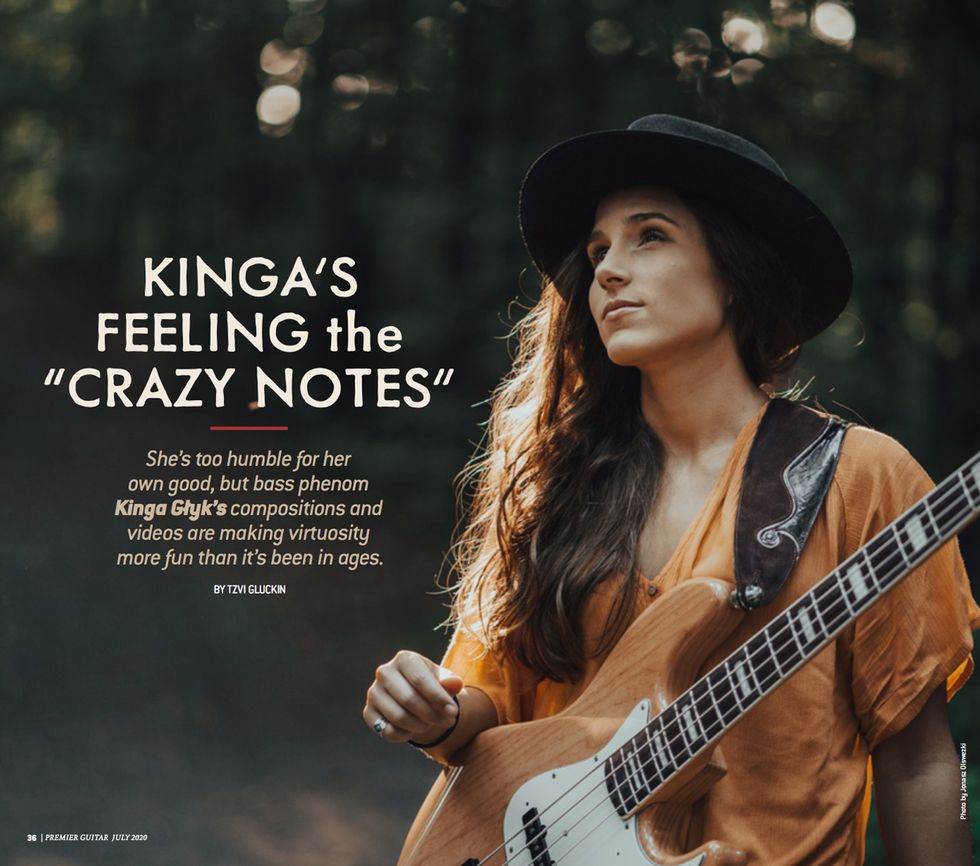

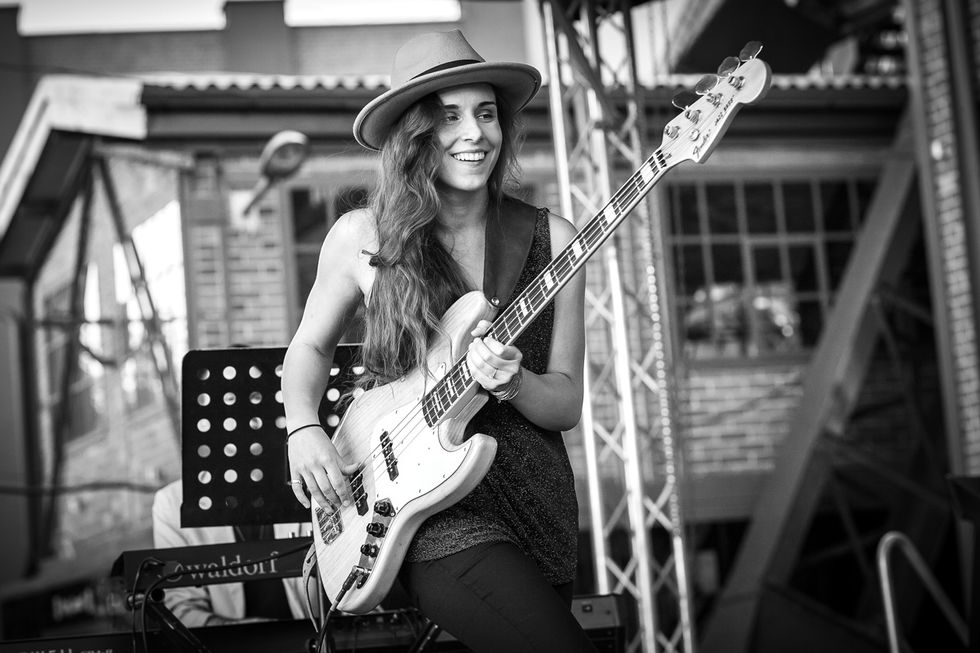
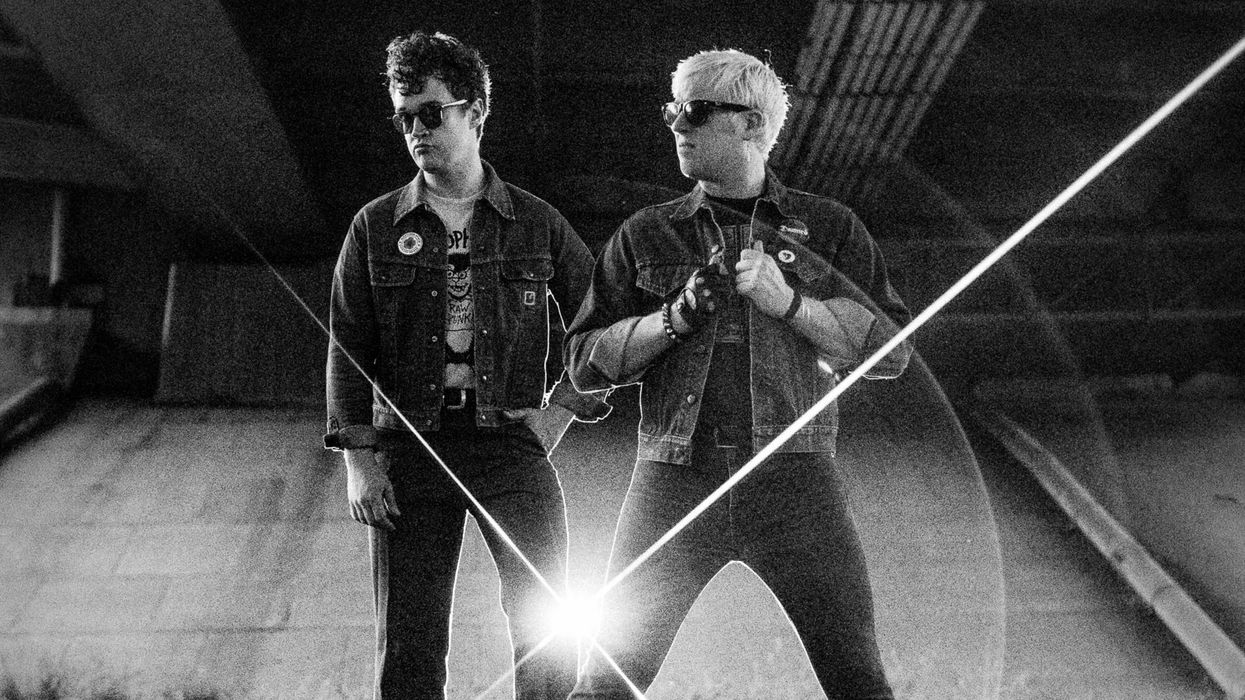


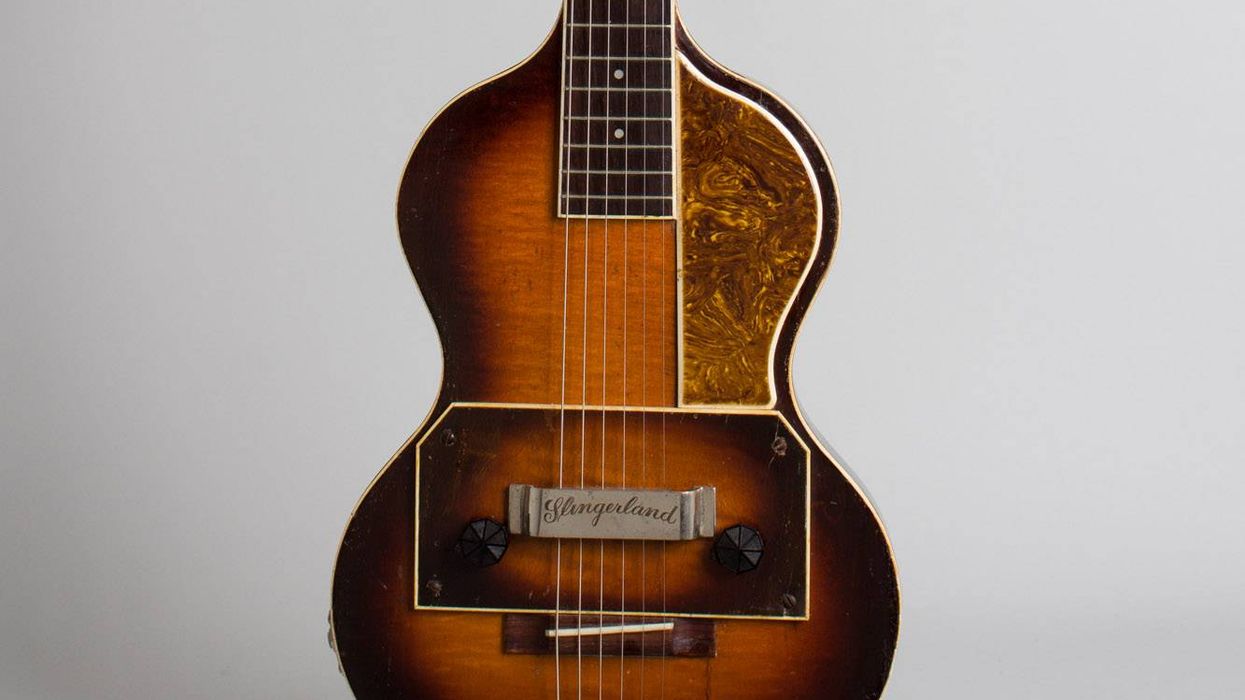
![Rig Rundown: AFI [2025]](https://www.premierguitar.com/media-library/youtube.jpg?id=62064741&width=1245&height=700&quality=70&coordinates=0%2C0%2C0%2C0)












 Shop Scott's Rig
Shop Scott's Rig
